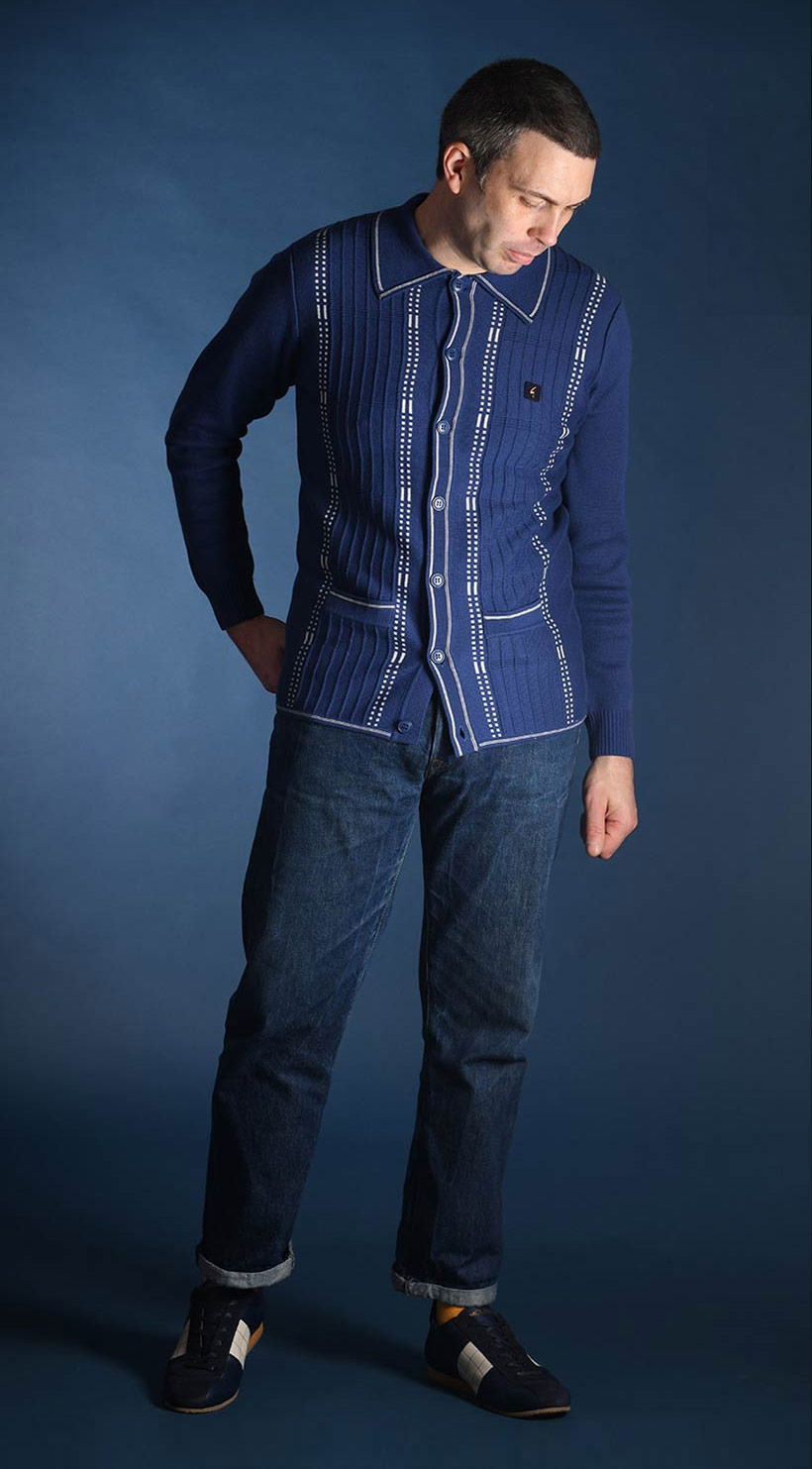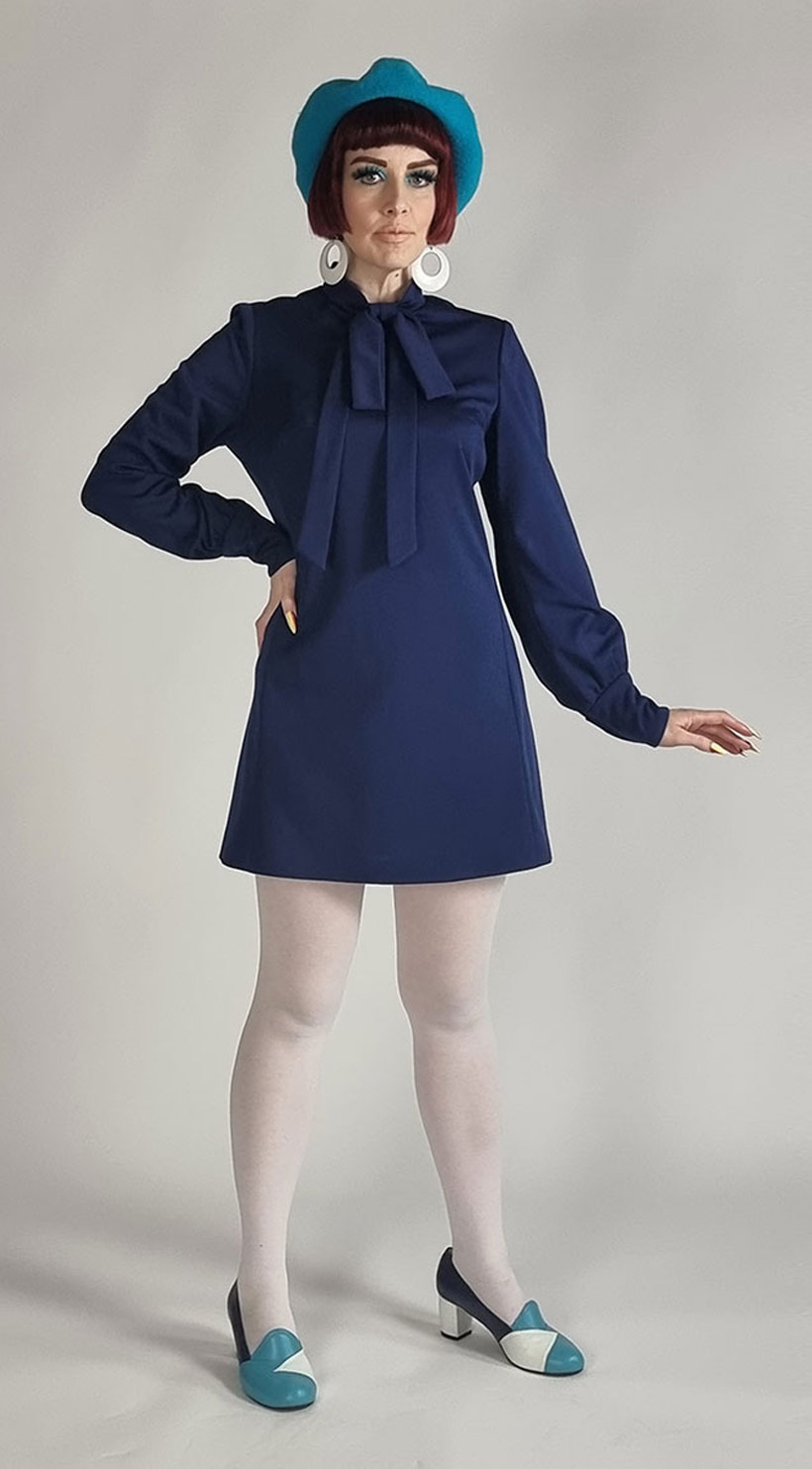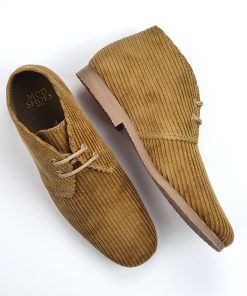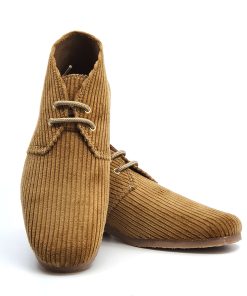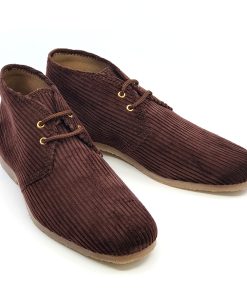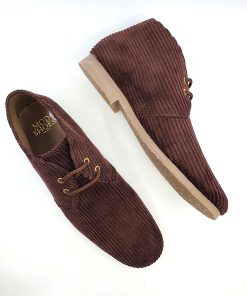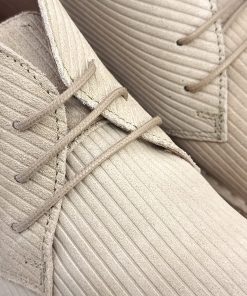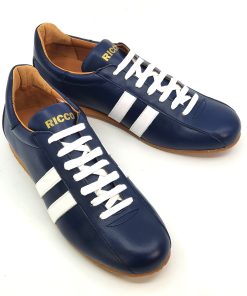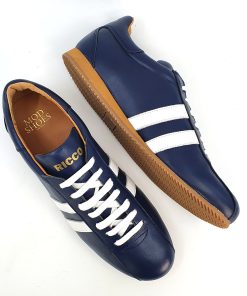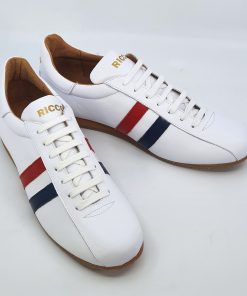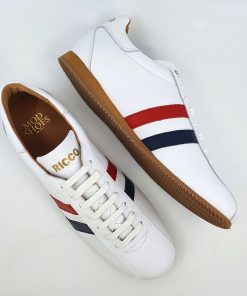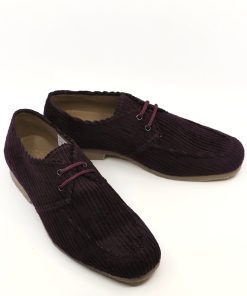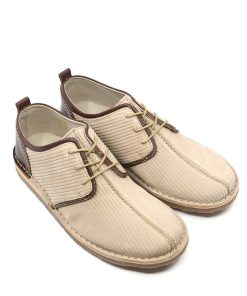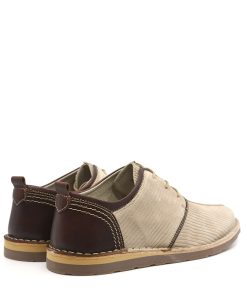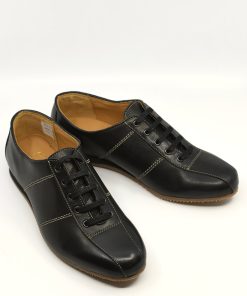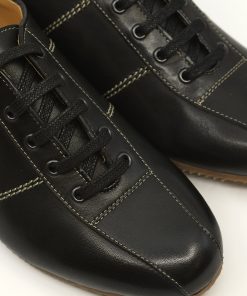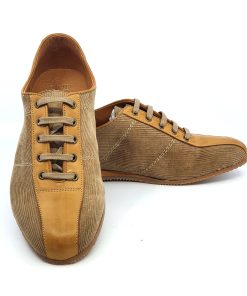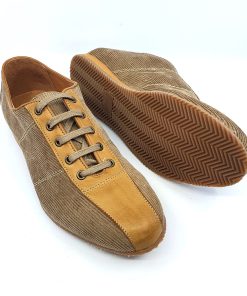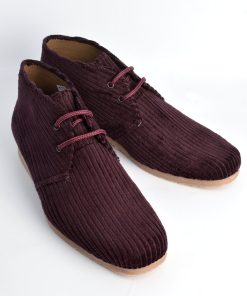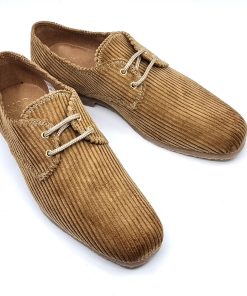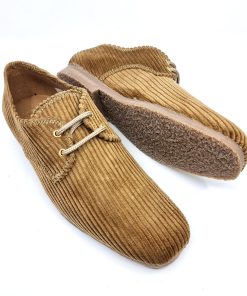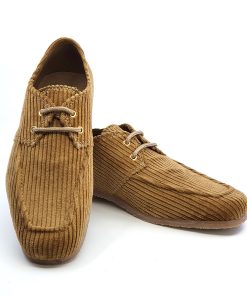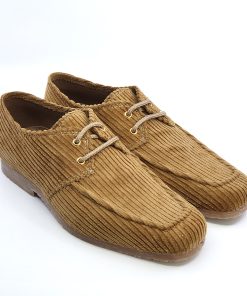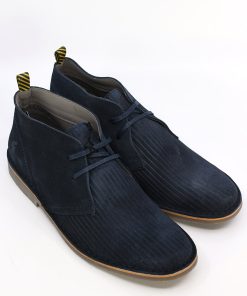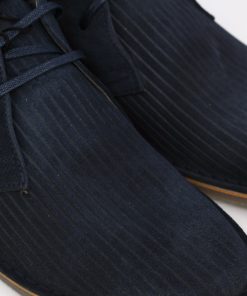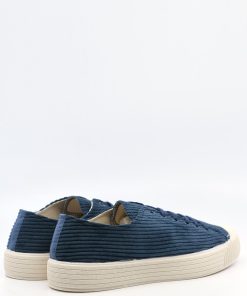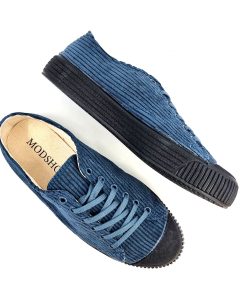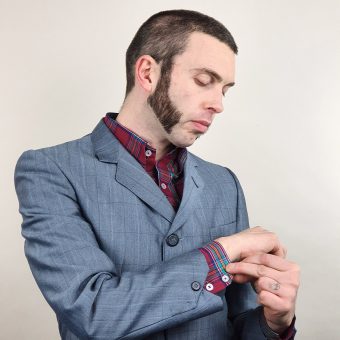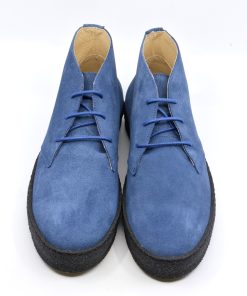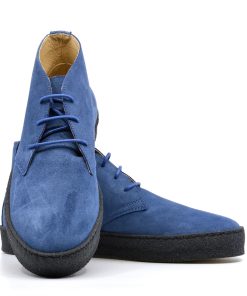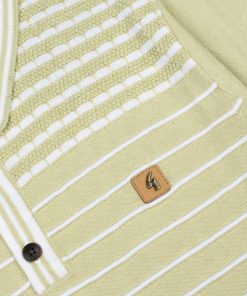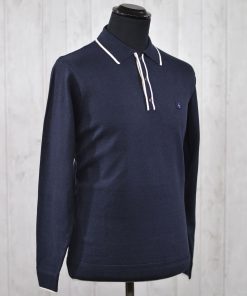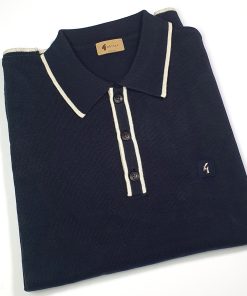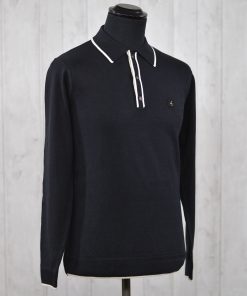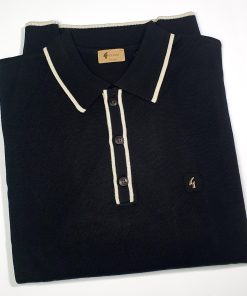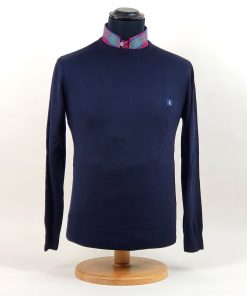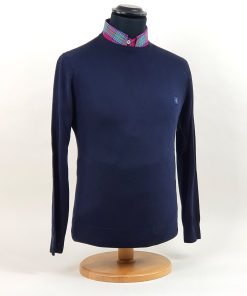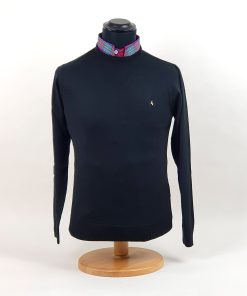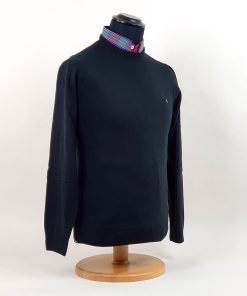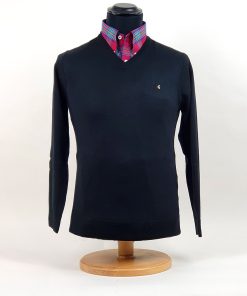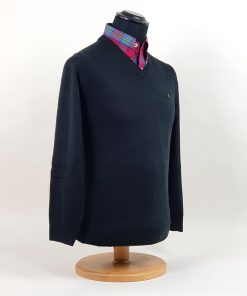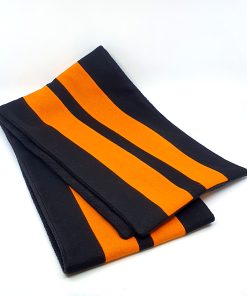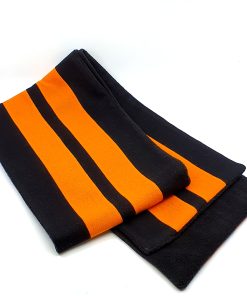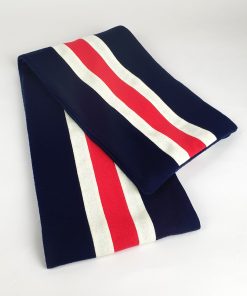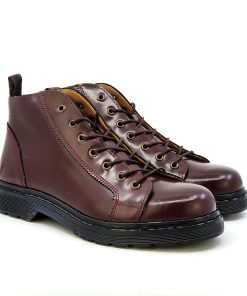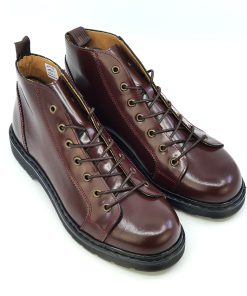TONIGHT TONIGHT TONIGHT
.
We are launching our new revamped ‘Modshoes Live’ show. The pilot went down very well and the new studio based format allowed us to share with you guys lots more info about our products, but also hopefully entertain you as well.
.
There is going to be 2 shows a month, with a mixture Shoes, Fashion, Guests, Talk & Live Music
.
So to watch follow these links at 8pm Tuesday 29th
.
https://www.youtube.com/ModShoes/
.
https://www.facebook.com/modshoesuk/live_videos/
.
If you are on virgin tv you can watch youtube on your normal telly.
Author Archives: Andrew Lindsay
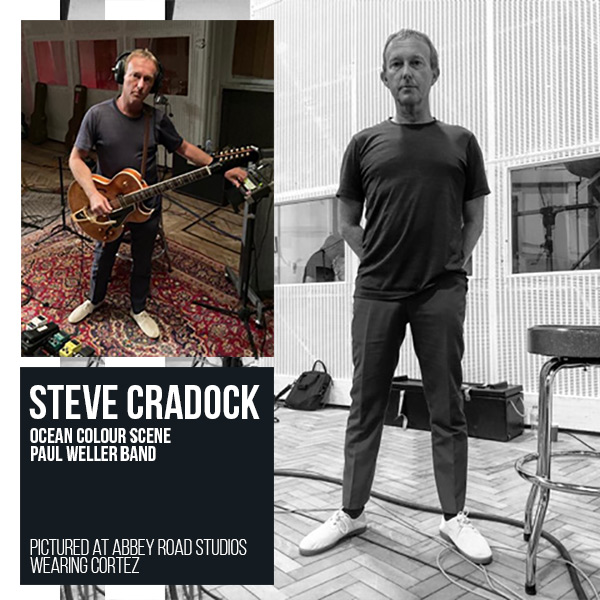
Cord Corded Corduroy
Cord Corded Corduroy
The “Elliot” Jumbo Corduroy – (Corded/Cord) Lace Up Boots Dark Brown
2024SummerCOllection
Mens Package Winter Offer 2022
The Ricco In Blue Leather & White Stripe – Old School Trainers
Mens Package Winter Offer 2022
The Ricco In White Leather & Blue Red Strip – Old School Trainers
Intro: Like the other revival of last year, the skinheads, these mods, haven’t got too much in common with their predecessors, but they think that mod is the way to look a mod band, are the right music to follow, it’s not just fans of the home, but hundreds of kids in and around London swapping their punk gears to Parker’s Fred Perry shirts and Asian scooters. But where the mod revival is really taking place is down in the club. This band is the codes, one of a dozen or so, who are recreating the mod sound and the clean cut way of dressing, bands with names like the purple hearts, the scooters and the mods, but why choose the mod era to emulate? Isn’t another revival just to sign that keeps a hard up for ideas of their own, right now, today, we’re going to look at mods [Inaudible 00:01:51] and find out what there was about the original price, that makes it so attractive to young people. 15 years later
Interviewer: So, hi everyone. Here we are with Billy Hassett. So Billy, but wait William Hassett to his mom and dad, but Billy Hassett to everybody else. Lead Singer and Guitarist in the brilliant band, the Chords. Anyone who knows me, I’m a massive chords fan. Billy has for the last 30 years, lived in Japan with his family, and some of you know, he’s done the odd chords gig since. It’s half past eight in the morning on a Sunday, because in Japan it’s not, Billy’s life in Japan for us now. So, Billy, when did you first start playing? What did you do? And hello.
Billy: Good evening.
Interviewer: Yes, good evening, so Billy when did you first start playing? with first guitars and stuff?
Billy: Oh, right. Music wise?
Interviewer: Yes.
Billy: I used to play my mom’s record player with a needle, [Inaudible 00:03:21], Bachelor brothers and yeah,
Interviewer: The guitar stuff?
Billy: Right, the guitar quite late really, I suppose when I was about 13. I was playing violin, and then would you believe it bassoon, and my mum when Christmas, got me a guitar,
Interviewer: You’ve told me in the past that you played in the school, you just go back and you went on to do more band stuff, but are you from a musical family? Is all of the family musical?
Billy: Well my dad can sing, he is a grand singer, they say. All the aunts and uncles, are grand singers.
Interviewer: Oh, okay. And is that a party piece at Christmas?
Billy: Oh, no, I’m embarrassed because they can sing.
Interviewer: Now it’s gone, Billy, can you play something we know? Now it’s gone”
Bill: Apparently my one is, ticket to ride, which is kind of that since I live in Japan,
Interviewer: I suppose that makes a certain amount of sense. But was it always in the blood? Are you from a family that plays records a lot?
Billy: Well I’m kind of like a large family, Irish immigrants they’re in the mid-fifties and my mom is younger, a member of the youngest actually in her family, but my dad is kind of bit mid-way. So they had brothers and sisters that are already over in UK, and they came along then. Actually my mum and dad met in London, but they knew each other from the same town, Ireland place called Nenagh.
Interviewer: So with the large family, you had bigger cousins?
Billy: Yeah. So they would be babysitting us and it would be, you can imagine in the sixties what it was like, ready, steady, go. Then later, [Inaudible 00:05:19], we will be set up because mom and dad were down the pub and the cousins, and then you know music was everything.
Interviewer: So did you, you lived in London, did you all kind of live near each other? So you could walk to each other’s home?
Billy: Yeah, I was born in Whitechapel, and we all lived in that area. Funny enough, not Camden, and later then the place we were living, it all goes down and we moved to South Iceland, I must have been eight or nine when we left.
Billy: Oh, okay, so that’s how you ended up at school… were you at school with Martin?
Billy: Yeah. yeah, I went two years’ primary school, and then we both went into [Inaudible 00:06:03] together.
Interviewer: I mean, were you saying you were at school?
Billy: Yeah. Yeah.
Interviewer: Okay. So hence while your kind of music, it creates sort of, kind of made sense.
Billy: Yeah. I mean, mine was in a school band as well.
Interviewer: Yeah. Okay, cool. It’s pretty cool.
Interviewer 1: Playing classical orchestra, [Cross – talking 00:06:24].
Billy: Classical music, yeah.
Interviewer 1: Which instrument did he play?
Billy: Martin was on the tuba.
Interviewer: [Inaudible 06:31 – 06:38]?
Billy: No. It was because of the love of music. See the school band in St. Thomas’ was, I know it sounds weird, but it was pretty cool. I was envious of the guys playing in the band and I’ve done up to that point. I was a Fiddler on the roof and they didn’t have a violin section. It was a concert van, so I got rid of that and then started up [Inaudible 00:07:04], and that got me in there.
Interviewer: But that’s a good thing. I think, because we spoke a few days ago, me and you. And it’s about when you’re learning music, you’re not only learning the, kind of the art of playing the thing, but you’re also learning music, aren’t you? Because you’re learning like full time and you’re learning all the things you need… so that kind of, I think not being rude about a lot of the bands, one of the good thing about the chords is, musically you were tie. I mean, you might say different, but you were, you can listen to that album, it’s tough.
Billy: Rehearsal time, we’re pretty disciplined and understanding because that’s the place where you learn the songs, and we learned that all through being in [Inaudible 00:07:52].
Interviewer: Okay.
Interviewer 1: I think that answer is prominent, because I was going to ask actually much later on, but it doesn’t really matter about, because “something’s missing”, my favourite and the way it is so well constructed with all the little, you know, it’s not just plain straight, like we always say [Inaudible 00:08:12] which is one, two, three, four, stop. There’s all those little bits and that’s so much across the whole back catalog. And that is why you say, I mean, how does that come about in a rehearsal room to turn it just chords into that?
Billy: Luckily like Chris I think, I’m positive that Chris, his first band was the chords. And he just accepted the way me and Martin worked and that was fine, you know? And then we were lucky to have a great drummer, and he just kind of slotted in perfectly. And then Chris was able to communicate the kind of things, he wants with them within the song. So, you know, we would break the songs up, as you said, like dissect everything and then talk about what should be happening here, there, and everywhere and how to make the song sort of like, I don’t know, more dynamic?
Interviewer: I suppose as well Billy, I mean, we can talk about influences as well in here, but I think that when you think about punk, you know, take a band, I love stiff little fingers, but stiff little fingers are, one, two three, four, and everybody, [Inaudible 00:09:25] And then they get to the end with the Gray band and it’s a great sound.
Interviewer 1: They perhaps got a bit more involved later on, they carried on for years, but the early stuff.
Billy: Yeah, you watched that clip of [Inaudible 09:40 -00:09:41] suspect device and you can see who’s the original drama and you can see he’s going as fast as he can, but it’s not natural. It’s just so stiff, and where’s Brett just does it, he’s very lucky that way, he’s kind of…. But this neatly brings us on to them, Am I right in thinking you was at the [Inaudible 00:09:59], have I got that right?
Billy: No, well, yeah, I was there, but I couldn’t get in. At the back, there was a fence, anyway, there was a fence there and everyone was like getting in underneath this fence. Next thing, Mr. [Inaudible 00:10:10] turns up in force and a scatter, I was only must have be about 11, it was 1971, 1972, wasn’t it?
Interviewer: Wasn’t it, the loud one. Was it for years it was the loudest one?
Billy: Yeah. So we could hear him, because it was in the daytime, I think they did it. Yeah. You know, it would have been evening time, so it was in the summer. So all I remember all this noise and….
Billy: And the who and punk is it? Because again, we’ve spoken about this in the past, but for the viewer’s sake, I always assumed the chords were massive, [Inaudible 00:10:58] hands, you know? but you were saying about you being fans of lots of things?
Billy: Oh yeah. I mean I wasn’t necessarily the biggest [Inaudible 00:11:09] fan in the band, I was beetle crazy. That’s why when I met [Inaudible 11:15 – 00:11:17], we just hit it off, straight away because another beetle fan, you know what I mean?
Interviewer: What is your friend Terry, Terry Rawlings in stuff like that?
Billy: I think Terry, yeah. But he was more kind of rolling stones [Inaudible 00:11:31].
Interviewer: Oh really? Oh, okay. Yeah.
Interviewer 1: Yeah, he’s more Beatles now,
Billy: Brian, yeah. Brian Jones.
Interviewer: That’s obviously what he’s made his work doing, but it’s meant to be about you. So yeah. But Beatles is that somebody, Dave was telling us, because I must have listened to it in headphones, but Dave Fletcher of the, the jammed said he listened to your album the other day. And she said, the beat was mixed, was that a deliberate thing to do then?
Billy: Yeah, yeah. Brett hates that track and I hate it as well because why did we do it? Because I loved, “she said, she said”, and I just wanted something different in the album. And to say, you know, we’re not “the who”, come from different way as well, I loved the Beatles from get go and the monkeys.
Interviewer: Yeah, so what’s your favourite monkey’s track? is it just them?
Billy: It’s just them, I like each member, David Jones I can relate to. I was that little fellow falling in and out of love all the time, because I’m sure I know. I love all lessons, it’s very hard to pick one, really is I can’t do it. That’s why I don’t do, people put up their favourite albums or give a list of it. I just no.
Interviewer: That’s a difficult one. Isn’t it?
Billy: I can’t do it.
Interviewer: Yeah, it’s a difficult one. But we were talking about like the monkey’s been on TV. I mean, when you thinking about band, did that infuse you? Did you think I’d like to [cross-talking 00:13:22]?
Billy: Yes, of course. I mean, that’s what I thought being in a band was going to be like, you all live together and you have these exciting dramas, and at the end of the day, you’re making music, totally. You know I think a lot of that is kind of true that friendship, that bond that you saw with the monkey. Yeah. We did, we fought, but we loved each other, we always have each other’s back.
Interviewer: [Inaudible 13:55- 14:0], are the same, all the bands are kind of, you know, they all say that, but let’s wrack through these questions. So was it always going to be a Rickenbacker?
Billy: [Inaudible 00:14:07] yeah.
Interviewer: I’ve noticed you’ve got one behind you, is that one from then, or?
Billy: This is the original, this is the one that was played in the chords. It’s always there because the dog, if I used to have a display area outside, and then we got a dog and she’s not chewing.
Interviewer: Oh, you’re joking,
Billy: But I’ve got the John Lennon type under there.
Interviewer: Oh, very nice.
Billy: Yeah. I keep that box; it comes out at Christmas.
Interviewer: For special occasions, [Cross-talking 14:44 – 00:14:46].
Billy: The three quarter one, you know?
Interviewer: Yeah, yeah now I know.
Billy: [Inaudible 00:14:48] with a tremolo, yeah.
Interviewer: And we spoke about the fact that they’ve got the small necks and because you’re like me, you’ve got small hands.
Billy: I was in the John Lennon museum with Damion some years ago and anyway, there was no one in this museum and it was put together by Yokohama. So there’s no one there. And I said to Damion, you know, [Inaudible 15:22 – 00:15:23] guitar? And he said that one. They all Castillo, [Inaudible 00:15:28].
Interviewer: I’ve got one there.
Billy: Oh, you got one, as you go in, you’ve the wrecking back. You’re not the first one that was like the Brown one then painted his next one, the one he probably bought, when he was, you know, got a bit of money. And I said to Damion, right. Let’s smashed the cases, I’ll take Rick, you have the LDP phone, we’ll be famous forever. We won’t run away with them, we would just sit there and we’ll be in the news. Right. We’ll probably get slapped on the wrist, maybe six weeks behind bars, but our names would always be associated with John Lennon. For ages and he looked at me and he stupid idea.
Interviewer: You need that stick again to get you off the stage. So consequently, do you think style wise, the young Billy, I’ve seen you in pictures of Parker’s wearing Chelsea boots and do you think that’s what you warm to it? did it just feel natural to you?
Billy: I’m looking at pictures here, if you hold on, bear with me. See my [Inaudible 00:16:56], I’m looking at that picture, all the time, that’s why I want it [Inaudible 00:17:02], so yeah, and I’ve got, I got another one on it, which I love and it’s looking at me always.
Interviewer: Yeah. Pretty cool. Yeah. I know Mr. Winston. So I must be even those sunglasses he’s wearing on that paperback, every time we go abroad me, Nikki, I’m always in second-hand shops trying to find those glasses. They’re just so hard to find, they’re obviously only like out for a short bit in the sixties and then trying to find them. So anyway, let’s get back to these questions. So clothes, did it feel natural to kind of dress like that? that’s how you want to protect yourself?
Billy: My mother was a fashion nuts, so as a kid, we would have Crombie’s pensions, you know, anything that was in vogue at the time, she just loved clothes and she loved dressing us up, me and my brother. And so it’s funny, because when someone is so passionate about something like your parents, I’m getting dressed up and rebelling. So when Punk came along, just wear jeans and all sudden, it was all right. You know, anyone that knows me, I’m a scruffy bogger at heart, you know, I’m not dirty, there’s a difference. I’m very tidy and very clean, but you know, around the house, it’d be just a t-shirt or whatever I’m wearing shorts at moments.
Interviewer: I don’t think you’re alone in that one.
Interviewer 1: I’ve got my shorts on as well, in that decision my house was freezing [Inaudible 18:48- 00:18:53]
Interviewer: But for you, we were speaking about like getting close back in the seventies, pre chords, you know, and that was hard for you?
Billy: Oh yeah well what happened was, I used to go to loads of gigs and I noticed that there were two type; there was the ones that were the punks, you know, and I wasn’t into all that, but there were the guys that would wear like a t- shirt, flip perry jumper. You’d have Levi chords straight and green flesh? or the jam shoes. I went for the green flash and then I got the [Inaudible 19:36], but it was a different image. And a lot of it was what the bands, like the jam and probably more bass cox, I was really into bass cox, but it was that kind of sixties thing going on and Elvis Costello, he was smart.
Interviewer: I think there’s some great pictures of the [Inaudible 00:19:59]. We talked about the jam and I don’t want to talk about it, because that’s a whole subject on its own, but the bass cox they’ve all dressed really well in lots of them, in different styles. And there’s some lovely double-breasted on the drummer. Do you know what I mean? they look great and they sounded great, a really original band. I mean, was that a big influence on your plane, Do you think?
Billy: Yeah. You know, autonomy and things like that, I never stopped playing and “16 again”, the riffs were just brilliant.
Interviewer: It is my wife’s favourite “16 again”, isn’t it. She loves that song, they are like across between the monkeys and the Beatles, but in punk on it, why aren’t, they’ve really, it’s good, it’s good stuff. Anyway, let’s move it. No, sorry, because, 18 minutes in and I don’t want to edit it or apply all of this. So if I just keep jamming along, we’ll be fine. Shoes, you just touched on that, where jam shoes like the only… we all call it, jam shoes, but the black and white one, but are they like the only kind of mod thing you could get or?
Billy: Well, no I mean DM’s worth a fortune now, but DM’s were the cheapest things you could get at that time because they were working men’s books, right? So you could get DM shoes and proper DM’s and of course like football fraternity would be well into the DM’s. Everyone had Dr. Marten’s, but I suppose Shelley’s was always there and Carnaby street was just off Carnaby street and I used to go there. Well, we used to every Saturday, got West and have a look around thee music shops and walk around Carnaby street and those days I have no money, any kind of money I had went to buy music books like strings and stuff like that. But later, shoes you could get loafers. They were not [Inaudible 00:22:10], but I’m just trying to think, we used to go [Inaudible 00:22:15] up lane on a Sunday. You’d be amazed by what you could pick up there, like desert boots and pigskin, quite boots I used to like gingery colour. So footwear, yeah limited to what you can get now, but there were, you could get….
Interviewer: Well you could, I can remember places where you can go, but moving on what we’ve got here. What I want to ask, somebody asked me to ask you in the checkers place pop bit, you’re wearing a jacket and you’ve told me before, where did that come from?
Billy: I’m kind of sending out a message that, we have punky roots and at the time it didn’t go down well, that was the message. We just come off towards the undertones and you know, we had so much in common with them and you know, as Chris said, we wanted to be a band, that most liked not necessarily a mod band. We were being more and more pigeonholed, and not necessarily by the fans, but the media, they’ve tried to sell us in a particular way and even our record company, and it was just an expression trying to express that we don’t want to be pigeonholed, and it kind of backfired.
Interviewer: Billy. I kind of, I get it right, I think that anybody who’s been in a band, any person who’s been in their mod soon long enough will tell you, it’s lovely you have an audience, but the press and everybody can’t deal with that. They have to pitch, and the same way they do with rock bands, rock goes in and out of fashion, doesn’t it? The same with, I don’t know , rockabilly or something. All, all music’s go in and out of fashion, and people like us love them. We don’t care if it’s in fashion or not, but if you’re struggling band, you’re trying to get on the tele and you’re trying to, I get it, mate, of course, I understand, but I quite like the jacket. I don’t really have a problem with that, but some are a bit more broad church.
Billy: The [Inaudible 00:24:52] place pop thing, I got a long enough, an Epiphone guitar and I was wearing that. It looked quite cool actually.
Interviewer: I don’t know why it was just [Cross-talking 25:02 – 25:05 trousers, and I had Chelsea boots on, but you kind of don’t see that because of the guitar, and it was half and half and a [Inaudible 00:25:11] two trousers, black and white two-tone. So anyone that was like looking and that could have the imagination to see what’s happening. Oh, alright, so it’s punk mod and the Chelsea boots and John Lennon it was a mix.
Interviewer: So look, if you’ve got some questions, cause otherwise wish you just take over this interview, but ….
Interviewer 1: That’s fine. But you mentioned the undertones, They’ve been on tour and so with them and you’re quite good friends with the undertones, is that still, you keep in touch with?
Billy: Yeah.
Interviewer 1: Oh, sorry. I was just going to say, so what was it like being on tour with them? Or have you been on tour with them many times? Is there some good stories there?
Billy: Oh, it was our first tour. Our first time to go out of London, and we went up to would you believe it, Leeds, leeds uni, you know, where live at Leeds was made?
Interviewer: Oh really? That’s pretty cool.
Billy: Yes. Oh yes, yes, and we’re in the studios and the Mac were joining us, now they were supposed to be supporting the undertones. But for some reason, all this stuff was in the sort of headlining bands, artists dressing room. Right. So the undertones arrived, and there’s all the next gear in their dressing room, Like [Inaudible 00:26:53]. And so when we arrive, the undertones are in our dressing room, that’s your dressing room or [Inaudible 27:02 – 00:27:06] on set [Inaudible 00:27:10].So anyway, yeah, we did the sound check and we’ve gone on and the crowd really wants us, of course we’re fresh out of London and we didn’t have all that nonsense that came later [Inaudible 00:27:26] always full of punks. And we had four on-calls and we didn’t expect them to get bottled up. And the first encore, you could see one of the undertones coming, on the side windows, you can look down, you see one of the undertones, second and another one’s come up and what was happening here. And then by the fourth, they’re all there you can see them clapping. And it was just amazing. And then from that point, yeah, yeah, it was great. [Inaudible 27:57 – 00:28:01] but no Irish connection.
Interviewer: I was going to say, I’ve seen pictures of you with them on that wall, which is on the first album, do some of them still live around there?
Billy: All except Damion, Damion lives in London.
Interviewer: Yeah. Yeah. He [Inaudible 28:16 – 28: 28], if you read the biography, from that moment on then is that how you became friends? Is that just because right. Okay that makes sense.
Billy: Yeah, and I never really understood or heard, I think teenage kicks that was about it and listening to their music. I just, wow, this is great. So we just got off on each other’s music and of course the neck was the catalyst. The neck, yeah [Inaudible 00:29:03], brilliant. But we just hit it off.
Interviewer: Because we’ve only got three or four questions left and we’re at 26 minutes. So you’ve taught, I don’t want to go into big, long cord, so history. And we’ve spoken about this Billy that everybody knows the chord’s history and stuff like that. And it’s just more of the kind of thing, but you’ve done two or three things since I think you taught in the early 90’s, I was at college and didn’t even know you taught in the night, you did free gigs, I think somewhere in 93, apparently or 96, somewhere around there.
Billy: Oh yeah, yeah.
Interviewer: I didn’t even know,
Billy: We did the summer tour, that was weird.
Interviewer: But it was completely weird, because I didn’t know.
Billy: That was the weird thing, nobody knows.
Interviewer: Whose idea was that?
Billy: I can’t remember because Brett and I were both living in Japan at the time, and I think it was, no, it was before the British way of life, I don’t know whose bright idea it was. It was just, you get on a free trip home boy, you fancy doing it. Yeah. It was a free [Inaudible 00:30:24] big chance to get home and see people. And I think it was a week of gigs, 10 days. It finished off, I think in Knox County clubhouse, I think it was Knox County. And that was a good night, but it was the night before. And the tour had gone really crap, I mean, we were playing in Brighton. There was no one there. Right.
Interviewer: But this is [Inaudible 30:52]so nobody would have known, unless you’d rung people up asked, you know,
Billy: Well, this is it. So we fought well anyway, the hometown gig was that at the hundred club and the lads forgot to pick me up. And I thought to myself, well, one is going to pick me up. So I got the number one bus because I was staying with my brother at the time, and I always used to get the number one bus into work. I was going on a complete nostalgia trip, you know, going on the number one back to work in very near up to circus. So you get the number one, it will take you there. And I hated the tune. I prefer to be on the bus. And it was lovely going past everywhere, and I was in heaven. Of course they’ve arrived at the hundred club. Who has picked up Billy where is he? he was supposed to be here. [Inaudible 31:57 – 00:32:00], he’s going to go nuts. So guitar and everything in the bag and what’s happening. You alright? Yeah, yeah, no worries. Seriously? No problem, brilliant really, it was all good. And we had good sound check and just stuff around the punk and we weren’t drinking just like now we’ll get you in a bit of a line. And someone said to me, because with all your mates from school and you have guys I’d worked with in Japan, come back and then move on again, it was brilliant. I want to be jarring with them that they want to go back there, but I couldn’t drink. And next thing sounds walking in any said, yeah, what’s happening down at the Country Club. That’s where you’re playing ain’t it? I mean, yeah, it’s unbelievable, this skill is going up and down the road. No, when I got out, I couldn’t believe it, we played a brilliant gig. One of the very few and I even did a stage dive at the end of it, I’ll never took that again.
Interviewer: The big [Inaudible 00:33:25] in the a hundred club. It’s not that deep.
Billy: Yeah. But again, you know, couldn’t enjoy it because next day we were up to not in a [Cross-talking 00:33:37], London wasn’t the last year, so there you go. But it had been a good gig, so yeah.
Interviewer: But you then obviously, I want to get onto our good friend cause you, you played a couple other times and then the 2010 has been the real last time, you wound up with some [Inaudible 00:33:54] called gigs. So let’s kind of get this question in one go. So I wanted to I want to mention our friend, Ranny, and I want to mention the fact that you’ve had abandoned Japan, the play called songs, so you could warm up. That is just crazy stuff to me, and I don’t mean this rudely the band from London that we’re around for a small amount of time. I’ve got fans all over the world. How does that compute in your head? That is just, I know their good songs, don’t get me wrong, but….
Billy: I’d given up before 2010, you know the undertones came over to play in Japan and Damion was in touch. Of course. Could you get a guitar with [Inaudible 00:34:42]? Yeah, yeah, yeah. And I said, do you want a hand? You know, I’ll do the strings and stuff. And he said, [Inaudible 00:34:48], please, if you wouldn’t mind. So no worries. So I’d only played two gigs in Tokyo, so I’ve gone down and I was just doing the guitars and it’s like, you know, you’re behind stage and you’re watching it. And history and seeing that it was with Paul, of course not Vergo. And I met, I met Paul previous, but you know, this was different, this is Japan. And now I’m part of the mix if you like. And I was standing there and I thought, God, I’d love to do this just one more time. And that’s the story with Damion, as in the beetle John Lennon museum, that was a few days later. Okay. That was all in the same time. Anyway, I’m back home, got back to where I live North of Tokyo and this phone, the phone’s gone and there’s a guy there and what happened was this bloke, his wife happens to be my youngest teacher at preschool. Right, and he said to her, cause she’s gone, oh, this is a foreign kid in my class, her name is Lisa [Inaudible 36:06 – 00:36:09].
Yeah There’s not many [Inaudible 00:36:10] to the pound anywhere in there. So he’s scratching his head and he’s gone. [Inaudible 00:36:21]. And he’s brought out the so far away. I’m too wife. How is it him? Cause I used to pick her up and I used to do the Santa Claus for the school every year. So yeah I see, a bit thinner though. So he’s on the phone in a, now my Japanese isn’t great. And I thought he’s phoned me up for probably because he knew the undertones were in town. So I’ve gone, oh yeah, that’s me, yeah, oh, I guess you want to speak to Mr. O’Neil he’s right here. Hello? No, he’s phoned me up because he’s a chord’s fan. Anyway, next time we met it turns out he was a bass player. Then my next door neighbour when I first moved here, we used to have little parties for the whole neighbourhood we used to get together. He was a drummer and a scar band. Brett’s mate was a lead guitarist that I knew from previous, the red & white tops thing [Inaudible 00:37:28] was here. I met him a couple of times and funny enough, I met him in London cause I went to see you too. So anyway, I met him there and I became friendly with him and used to come to the house and we used to jam together and next thing we’ve got a band. We’ve got [Inaudible 00:37:53] on the bass. [Inaudible 37: 53] on the drums and we just friendly and next thing. And those came through from London, you know, we, we were going to be playing isle of white, the festival loaded out the door. Would you like to, so I thought, oh yeah. Now remember the tour before. It was just me and Brett. So I had someone to practice with, but I’d been completely on my own. And so Brett said, know why don’t you guys get together and use that band as a kind of preparation springboard.
Interviewer: To get warmed up and get, get back into it. Yeah, yeah.
Billy: To get the me match fit basically. And it worked and been playing these songs with the guys. It was unbelievable. Cut and a long story short, we got it promoted. The undertones thing in Tokyo then said to us, the Jake, we weren’t called Jacob. He said, if you’d like to play, there’d be support bands with the bands that are coming out from the UK. Cause he’s he had a record, a record shop, final Japan, which are quite famous if you went.
Interviewer: Yeah, I’ve heard of them.
Billy: Yeah. [Inaudible 00:39:11], and you know, he said any bands coming over, would you just play, Walmart saves me a job. We’re looking for someone and you know, you’re going to be doing the cool stuff, and I said yeah. So could you call it Billy H or Billy Hassett and the Jay chords? So he used to promote us as Billy Hassett and Jay chords. And then I just came down to Jay chords. But then after the Australia thing, Michi said to us, bye I’m off, and that was the end of that day. Okay. But after Australia, which is a shame because we started to get our own little sound and I started writing songs again. Yeah.
Interviewer: But bands are bands, but we have a mutual friend, Ranny from Israel. Who’s a massive, you know, he rung me the morning when you had some sort of title thing, big, bad thing going, he goes, yeah. He was really worried about you. And I think that’s lovely a bloke in Israel. You know? I mean, if you’ve met people from Argentina that liked the chords or if you it’s just about every country in the world sort of says, are you Billy from?
Billy: Well, Brett is the traveller. And I’m a very, [Inaudible 40:29 – 00:40:35]. So I don’t like the actual physical trying to get from A to B a lot being in B, but it’s that nonsense. And especially now I’ve been in Japan for such a long time. My only time I travel really is to go home and to see mom and dad in Ireland. Yeah. And sometimes as you know, I go home to London and see the mates, if I can, but I, you know, being in Caswell just freak me out. You know, he was a chords fan, not an undertone fan. And this is me giving you the [Inaudible 00:41:12] absolute pleasure of being able to invite him into a band. He was over the moon and then to see the chords. And the funny thing is we were warming up. They were like, hung over. I don’t know what was the story with them, but we got on and did the sound check forum. And then next thing, the chords came through the door and have just, and Chris came up. and just, my God. Is that how we really sound like that? That was bloody good. This is the thing you never ever get the chance.
Interviewer: To see yourself.
Billy: To see yourself.
Interviewer: Yea, and I must admit, because I’ve started this interview playing the clip from the London weekend television and it’s a bit splashy, but it’s how You sound to me. The album’s great, but love, especially that now it’s called with Brett, the big who bigs, you know, I love that. That is just alive. I’m not being rude, but I don’t think it ever quite works on record. It never quite gets that, dang.
Billy: You don’t have that force, I said to Brett, you know something, I’ve played with so many different drummers, but I said, you’re unique. And he’s looking at me and I said, your bass drum. He said, I’m standing in front of you, and you’re hitting that bass drum. And it’s actually sending my trousers, [Inaudible 00:42:38] my legs. I can feel the beat. So like, you’ve got that whole energy, especially when we were younger, because we just, everything was 11 and me and Chris would compete in at the time as well. So I want this to be louder than him. And he wanted, so they used to say that the cause was, you know, if you went, it was a wall of sound, you know? Yeah. It was, it was, I could never hear myself saying, okay, as we later on, though, we discovered maybe we should not be doing this. So I kind of turned it down, Chris is the lead guitar, it’s not me. Yeah. Finally,
Interviewer: That’s great, that clip, you’re doing all the pink towels. It’s a great clip. I know. I love that song it’s funny. I just give you some good thing. What I love about that song is it’s rapidly turned into one of my favourites now. And when I go and see the many versions of the chords, it’s always one of my highlights. Cause I love that. I love that, who ism, I called it [Inaudible] because Who is the rubber bands of doing but it’s that kind of moon bit.
Billy: And you only got the kinks in there as well. You know, I ripped Marriott off, you know, the chords.
Interviewer: Tell, tell us about writing because it’s not one of the questions and I know Luke’s kind of thing. And we spoke about how you construct, it also is Chris’s songs but I mean, did he bring like complete songs or would it be kind of flip, I’ve got G and a C and I don’t know what else.
Billy: No, Chris was ill when he was in a six form. He had [Inaudible 00:44:53]. For a year he was stuck in bed. So I believe he wrote a load of stuff then. And Chris was throwing much into Bob Dylan and running stones. The home, of course he was a big clash fan. And Chris used to come, Martin, and I used to go down to Catford with Christina and Chris would have a song there and he say, we never really talked about it. The lyric or the attitude or feelings and all that sort of stuff. He just said, you’ll go, there’s a song. I want you to go, Oh, he’s trying to put my interpretation onto it. And you know, if I did something wrong, he’d soon tell me, no not like that.
Interviewer: Right.
Billy: And then we’d go in because you know, money was tight and you know, you don’t go into a studio until you had it all figured out, [Inaudible], and then you go into the studio. Brett, you know, only came in at the end. He really wouldn’t be around where say me, Chris would be in the room together. Then Martin will come in and finally Brett will be down. That will be it. He would deliver it. Yeah.
Interviewer: Yeah. I mean, it, wasn’t a kind of a, that rehearsals, somebody going one to your jamming away. Like a lot of bands. It was kind of like, we’ve got this and now we’re going to construct this, oh, that’s interesting. Yeah. I never knew that about you. I just had no idea how you constructed the songs, but was that discipline, that you were talking about before that allowed you then to go, right, well, if you’re going to be doing this, that might be good, if we put that on rather than sort of being all making a noise.
Billy: On the minus side, we were never any good at like just jamming and, you know, everything was worked out before we even got into rehearsals. So we just focused on areas and sounds and see dissecting, seeing what works, what doesn’t work, you know, in getting the song complete later on a set, complete, but we never like, Oh, let’s just do noodle and we’ll see where it goes, no, we limited time. We had to do this, finished look up next week now. Okay. Let’s try and get it better. None of that free willy stuff. No.
Interviewer: I thought that sometimes it’s fun, they’re doing it, Luke?
Interviewer 1: I only like it, if I’m playing the drums, I don’t like it if I’m playing the guitar.
Billy: Yeah. I just don’t like it.
Interviewer 1: Do you still try and play as often as you can [Inaudible]?
Billy: No, just look at them, and just cry and I’m like [Inaudible] And I feel so guilty all the time. So I walked past this room like that.
Interviewer: Billy I wouldn’t feel bad about that, my guitar sits over there and people often say to me, right. You’re in abandonment. Luke’s always trying to get me back in a band, but I just, I don’t know. I don’t feel like it’s, I don’t know, but I can’t speak for you, but for me, I feel like I’ve done it, I’ve done it as well as I can. And without doing a lot more effort, I don’t think I can [Cross-talking] Is that the same for you?
Billy: Yeah, and you know, people really, if you’ve never been in band, you never really appreciate the pure luck of getting four individuals with the same mind-set, you know, same room together, going down the same way because we want to go down that road. This is so rare and people don’t really get it.
Interviewer: No. And it takes a lot of hard work, you know that don’t you Luke?
Interviewer 1: Yeah, you’ve played in numerous bands, you play with the rep because when we were in that mate, you know, it was kind of, when it all started, you were all eager Beaver, but then, you’re freezing. I can’t stand when you start, can’t stand you, we never not can’t stand each other, but you get a bit sort of, not this again.
Interviewer 1: It is true. That’s why, when it comes to original music, now I’ll just do on my own. I don’t bother having a band for that anymore. Just play on my own.
Interviewer: I think that’s the modern way, you know, Ed Sheeran and people like him have proven, you know, they can do it on their own, it’s interesting, Carl, from the farm, we were talking to him about like being in a band and, he said, you know, they were in the farm for years, literally years just as mates. Cause it was something to do. And I get the impression that sometimes some bands are just doing it because it’s just a bunch of mates wanting to make a noise to give it because excuse my language, you got fuck all else to do
Billy: Well, what I miss most about not being in the band is that camaraderie. Yeah. And I live a life of, [Inaudible] I have been for some decades now, so, getting those opportunities to play, you know, in the past tools once I got over the nerves and the doubt can I still do it, because that’s always there. You know, I could relax and actually enjoy, right. But as I said, it was always, for me, live was always difficult because so many distractions so many things can go wrong. My nerves before going on, horrible, horrible. I couldn’t sleep, I can’t sleep anyway. But if there was a big gig coming up, I couldn’t sleep couldn’t rest. And you know, most of our best work, I think if you spoke to Brett Martin and Chris, the best time for the chords to play would have been in the rehearsal room. Cause you just are focused, you don’t have to perform to anyone, you’re playing for each other. And we would have a session then say, God, why didn’t we record that? Or no one will ever see that. It’s such a shame.
Interviewer: Yeah. I get that. But I think that’s the thing, isn’t it? if you’re going to be in a band, you’ve even got a new band and say like nine below zero and just play all the time, you know, and almost we got to the point in, we look with the rep because we didn’t rehearse, we were just so [Inaudible], but we would learn new songs on stage, I remember that song we did that song. Was it how the Cielo green one, Luke, do you remember that?
Interviewer 1: We just played and hoped for the best, just made it up as we went along and it was good fun.
Interviewer: And I think that was, I think that’s good, there’s loads. I’m going to figure it out. Now. We are out 49 minutes. So I’m going to hit the stop button, I need to finish this so I can use this as a name bit. So let me just so kind of thank you, Billy, for answering some of the questions and sharing some of your thoughts with us and we’ll say goodbye. So we’ll say goodbye. Good man.
Billy: Good bye everyone, you take care. Good luck, stay well, stay safe, stay healthy.
Interview with Andy Morling
Male Interviewer: Well, hi guys here we are with Andy Morling. He’s because it’s the wrong way
Around, no that’s still wrong, he’s there. He is the author of Mod Ghosts it’s a brilliant book if you have a quick look inside, you’ll see that’s pictures and the stories. It’s not a novel, which I think some people might have thought it was at first. It’s got loads of stories which are going to chime with lots of our audience. But, that’s enough about me talking about it. Andy, what’s it about?
Interviewee: Yeah. I think the title was an issue for me. First of all, good evening everyone. Uhm! yes so, the title thing has been a bit of a looking back on it possibly a bit of a mistake because as you said people thought it was a novel. People were, where would a ghost to fit into the mod city. And the thinking behind it was two things. I suppose one was the depressed petit Jam song, you probably know, it was originally going to be called ghosts on its own but, I thought that’d be even more accessible to the mod crowd. But mod ghost is about, the original idea came out my twitter feed back in 2016 I started which was comparing photographs from the revival with the exact same location in the present day, but the idea was to show how things had changed and that the place it was still there, but the things had moved on. And that then so that was the basis of the book, it was to be a photograph book a book of photograph. And then when I got people contributing their photographs, I thought you know what some of these stories are just as fascinating as the photographs themselves and how people had moved on too. So, we’ve all kind of, we’ve all changed we have all gained weight and lost a bit of hair over the years. But actually intrinsically, the people wouldn’t stay the same too. So, it’s two things; one was the locations had changed and secondly the people had changed. So, it’s back charting how those two things that happened over the last 40 years or so.
Male Interviewer: Okay so do you think, do you think the attraction of more especially in the early eighties was everything music style guys, girls, guys and probably dare I say at the Jam? Do you hear…
Interviewee: For me personally I speak for myself really Andy to me it was really about something that’s different I was a little bit too young for punk first time around and actually I’m glad that was the case because I wanted something that was new for me. So, I was hitting puberty just around the time that the motor driver was starting yeah when I saw secret affair on top of the
pops that Thursday night in 79, I thought what the hell is this? It was so different to the… to what’s
happening at the time you know. People were dressing like… I’m talking my language clean, but dressing badly around that time, towards the end of the 1950’s. And what I saw were these guys that were dressing smart and I, from a working-class background, I didn’t see people dressing like that, you know what I mean, I hadn’t been brought up around people wearing suits. So, to see this on the TV was just absolutely amazing and I was like, that’s going to be me.
Male Interviewer: But Andy is it also about the suits? The suits aren’t like the suits your teachers wore at school you know; they were like cool suits you know, and I put it on here you know one of the
question is you grew up in Ipswich I grew up in Cottenham. So, do you think us, our towns had a different take on it because we wouldn’t have seen perhaps X mods just walking around like they might have done in London. Do you see where I am going with this?
Interviewee: Yeah, I think it was harder in many ways because also being out of central London or out of London we didn’t have the touring bands coming to us, so we didn’t get to understand cigarette fare in our hometown we didn’t get a chance to see some of the big mod bands playing in our local you know our local event hall. We just didn’t have access to that we didn’t have access to the shops that perhaps London mods had so it’s a bit more, I think a bit more introspective. I think for us in the provinces, we had to work harder to find things. And therefore, recorded music was more important to us than perhaps live music. That’s how it was to me.
Male Interviewer: I think that’s very true you know. I know for me; it was about the records you know, and it seemed that seemed like another world away. But it’s interesting you know a lot
mods from the 60s could sometimes look down on us you know. And it brings us to this next question
which you’ve touched upon already I thought it was hard, it felt like hard work you’ve been chased by
Skinner’s and casuals, you understand? you see where I’m going with that?
Interviewee: Yeah yeah. I think it was harder in many ways though because if you think back to the original 60s mods, they were essentially wearing the best clothing, the contemporary clothing of their time. That was contemporary clothing they were listening to contemporary music in the 80s, late 70s we would have swing massively against the tide. We were looking for clothing that was you, know 20 years old and looking for music that was 20 years old, so it was that much harder for us in that we have the dig really deep try and find the stuff we wanted. Original mods had it easy. They were just wearing the good stuff of the day and listening to the good stuff of the day.
We had a doubly hard in the provinces I think we had that if I could we resort of temporarily distant from the original mod scene and secondly, we were distant from the sort of beating heart which was undeniably London and I covered that book a little bit in the book about the difference between the London scene and the provincial scene.
Female Interviewer: And talking about stories there, you covered a lot of things in the book. There are countless stories in the book and ones which we resonate with the audience we have tonight. And one of them is about hiding out in second-hand shop the records in second-hand shops and then going back for them a week later. Was it good to hear about lots of different people from all over the place doing that as well and it wasn’t you know just you doing it, it was quite a few people?
Interviewee: It was. Do you know what it was funny because as I read the story the people were sending into me and saying you know what I use to do exactly the same thing. I know there was
a very which was I remember going into the dole office or the job centres it was in those days going to the job centre seeing a job on the sort of job boards and then pinching the little card that had the job on it and shoving it you know in my pocket so that no one else could apply for the job. I think subterfuge were quite big things in the late seventies it was kind of yeah fascinating reading those stories and to write them and to capture them for history I think as well you know those things our grandchildren will look at maybe in 20, 30 years’ time they’ll look back and think wow that was a strange way of living you know.
Male Interviewer: Yeah it was a stranger a living
it’s madness to be into something… anyway.
Interviewee: Sorry the extent to which we used to, breaking the law was kind of mainstream
you know I sort of explored in the books about some of the ways that we get around the absence of an appropriate motorcycle license you know. This was really clever stuff it was it makes me wince a little bit to think that you know we broke the law to that degree.
Male Interviewer: Haidee pillar said on one of his recent mod casts he said he said he didn’t have
a MOT or insurance or something else for two years and he didn’t know what they were. Nobody had ever sort of said have you got a scooter? Now you need to go and buy, and it wasn’t until we met someone in somewhere in northern London northern London and they say have you got it you know and that’s ridiculous. Anyways, sorry.
Interviewee:To ride or I mean anything that drink driving, or you know riding a scooter when had drinks. I can recall going home one night and came around the corner of my street, it’s my home address and I went straight into the back of a Volkswagen Beetle with my my scooter and it kind of just wedged there it just wedged in the back of this this big and I just thought I’ll just leave it and I left it and went into my house. Got up in the morning and pulled it back out and off I went. You didn’t event think that that, insurance really didn’t matter back then.
Male Interviewer: Asked the question about scooters Jenny, you got one there about scooters? The next question?
Female Interviewer: Yea I’ve got one. So, did you like the fact that scooters were relatively cheap, and it was a good way of transport for 16- and 17-year olds back in the day?
Interviewee: Well, I don’t know where you were buying the scooters from, but they weren’t cheap back where I was buying them. I think around 30 pounds a week was my first job around that time. Yeah yeah you know that’s not a lot of money. I think my first scooter was 150 quid which today
yeah relatively inexpensive. But at the time that’s a lot of money. Still yea yeah and a good sort of month’s wage and I couldn’t afford anything like the scooters nowadays. But to me it was
more about the scooters themselves they were just before 20 before it’s how beautiful they are as objects I was quite happy to sit and look at a scooter or sit on a scooter and have no problems of that
because they are just intrinsically beautiful things in my opinion. But they certainly weren’t cheap
back in the eighties where am concerned.
Male Interviewer: You could get cheap scooters but like you said you had to know someone who knew someone.
Interviewee:): yeah
Male Interviewer: This, we’ve got, I’ve got to ask some obvious questions being a shoe shop. Did you have a favourite shoe in that period?
Interviewee: I did and still the same one that I have today to be honest. I’m a man of simple things so, I like the versatility you can’t beat the versatility of dessert boots. I have to say that’s the
thing that stood the test of time for me right from back in the early days to the present day. I have problems finding good quality ones these days I must admit unless you want to pay the big money, but a desert boot absolutely was my shoe.
Male Interviewer: Yeah, I’d have to agree but like we just try, and we’ve been trying to find them to sell but that’s not ours.
Interviewee: And I wasn’t attracted particularly to the sort of more exotic, you know Jam shoes and those kinds of things and the bowling shoes or sort of too colourful for my liking I think. But dessert boots absolutely.
Male Interviewer: Okay and you quite an advocate of sort of Chicago house music which I
quite liked as well I see is a simple extension from detail soul and if you go back before that New Orleans jazz and all of that sort of stuff is it from the same source you know, is it, is it modern mode of music if that’s the way of putting it. Do you feel…?
Interviewee: I think this I think it is I think the thing that connects in my mind, well there are several
things that connect the soul new movement of the North States of America to yet to hack and the main thing that connects in my view is that they all have a time of oppression so there’s a
result of oppression so the Afro-American the Latino and the gay community in the Northern States of
the U.S. was suffering oppression in the late 70s and I think that bred the house movement that we have today that sort of sowed the seeds for the transition is going to house. But I think the way that house has evolved over the years I think is still very common and I personally believe the house that is being made today is the mod music of the present day.
Female Interviewer: Do you think mod has a future Andy or can it have a future meaning is there a recognizable form around today that you think oh yeah this is mod, or has it passed and gone?
Interviewee: Yeah, it’s a difficult one that isn’t it? I think I talk about a lot in the book and it’s not a spoiler for those who haven’t read the book yet but I mean my take on it is I think I think it will die with us with my generation I do worry that there’s not enough new blood coming through. My concern at the moment is that we that you’ve got two forms of mod in mind you’ve got the backward-looking almost pastiche of what mod was or what mod is yeah, and they’ve got that used the mod ethos. And
I think I’m much more in line with the second group people who you know looking good on all the time you can trying to have a positive attitude a forward-looking attitude that to me is what the mods about and that’s the thing I think that will last into the next generation. I think the backward-looking stuff I don’t know I think it probably shouldn’t to be brutally honest.
Male Interviewer: Right! I did… it’s a fair point I mean we sell shoes if we’re going to get any discussion about it which we are probably not. It’s a difficult one because on one hand we sell like
tassel loafers and they’re fairly standard ones that have been the same since like the 60s you know and it’s kind of that design. On the other hand, you think to yourself or if I don’t sell them, you’re not going to be able to get them? And see you sort of think well will a modern audience perhaps do a version of that you know and it’s you know what’s not…how do we put this, you know it wasn’t well a reversion of the who and likewise was, dare I say this, a waste as a version and then sort of house
music is a version of Motown. Do you see where I am going with this?
Interviewee: You see there’s a common thread definitely. I mean there’s the thing that I find unusual about that you mentioned the Jam the Jam I would imagine have met and recorded I don’t know some two hundred tracks wrapped in their in their short life. And that’s, you could listen to that in the working-day from end to end in the entire catalogue of the jam and yet they’re revered to such an extent that said that well, solo work is just never achieved. Well are still producing quality material today and it’s not getting the same reverence as that sort of small set of maybe six or seven hours of music that recorded and you know thirty forty years ago and I just I just wonder whether we are progressing enough whether we just some of us are just stuck in a bit of a rut and I think the things that survive and I think even in the shoe world it’s the same classic will always be a classic in my view.
Male Interviewer: Fair point. We mustn’t go because Gemma’s got another question and otherwise, we will go on all night
[Laughter] [Laughter]Female Interviewer: Have you got plans for another book? If so, what will it be about? We know in this book, for people who haven’t read it yet, you talk a lot about pubs. Would it be a pub book maybe or something?
Interviewee: My secret is out. My fondness for pubs, yea I do talk about pubs quite a lot and I am I passionate about the pub and I’m sure you can imagine right now struggling because I haven’t been to one, it felt really odd. I tried one of those virtual online, but it wasn’t so good. But anyway. The pub is more about the tradition. I guess the tradition that is the British pub I’ve got a real soft spot in my heart for that and I think the way that that’s changed over the years is similar in some ways to have the mod scenes changed and it’s come much more focused on it on a few quality things rather than the number used to be. In terms of answering your question my next book I am planning a follow-up to mod ghosts and probably would be like Mod Ghost 2. But it might be like the prequel so, what I’m looking at doing is focusing on that period the ten years prior to the revival so the 1968 to 1978 period which was a bit an odd period because it’s a transition from the answer the original mods to the revival but I think the fascinating period too. I think it will focus mostly on the north of England that was where the majority of that the faith was kept in that decade. So, I’m about to start the process of mod ghost 2 looking at other forms of media as well if I can to try and take this forward. I just want to leave something behind that captures the ordinary things of the mod revival in the mod period prior to that rather than the things you know little things that mattered to us like Andy was saying about you know leaving records inside on the screams just the little things, the ephemeral, that will be forgotten this week capture and record it.
Male Interviewer: I think that’s I think that’s the absolute perfect place to round this off. This this is the book, let me try and get it into the screen so we can actually show it’s called Mod ghost by Andy Morling. You can get it on Maude ghosts…is it dot co.uk?
Interviewee: Yeah.
Male Interviewer: I think there’s a few copies on eBay. the hardback which we’ve got here I think there’s only five hundred of which is I like that so there’s that’s pretty good and I’m assuming you can buy it from there. Anybody else or …?
Interviewee: My website and eBay for the moment.
Male Interviewer: Well, Andy thank you very much for your time off that that’s been fairly brilliant I don’t think I’m going to edit this time much at all.
Interviewee: Thank you! Much appreciated. Take care.
There is a well-known fable surrounding the blues; namely Robert Johnson doing a deal with the Devil at a dusty Delta Crossroads for fame and fortune in exchange for his Soul. As the story goes Robert returns after disappearing for a few short months playing at Juke Joints and Saturday Night Jump-ups with an unearthly level of talent and a whole set of moody and foreboding new tunes that left many of the impoverished black population who cut loose at these events quite literally Dancing with the Devil.
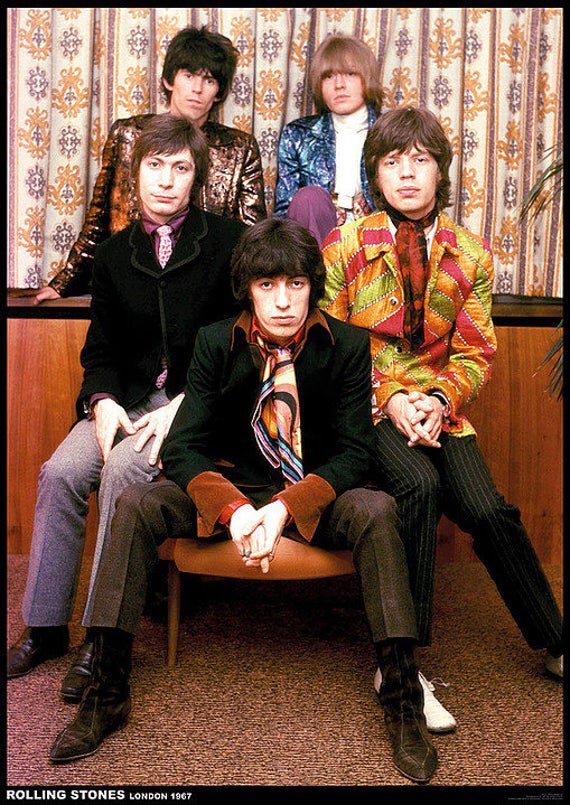 How true all this is anybody’s guess but what is known is that Robert Johnson certainly felt haunted by much in his young life from both real and imagined tragedy and he died at the tender age of just 27 (The first member of the ‘27 club’ as it came to be known).
How true all this is anybody’s guess but what is known is that Robert Johnson certainly felt haunted by much in his young life from both real and imagined tragedy and he died at the tender age of just 27 (The first member of the ‘27 club’ as it came to be known).
No doubt England’s most successful Rhythm and Blues band would have been aware of the legend and Robert Johnson’s sole LP was a frequent play when Keith Richards and Brian Jones were learning their blues chops. The Rolling Stones had a meteoric rise, second only to that of The Beatles and were a London counterpoint to the Mersey sound that flooded the charts. Add to the mix front man Mick Jagger’s overt frenzy-imbuing sexuality and clever promotion from their artful and shrewd manager Andrew Loog Oldham who sold them as the dark underbelly of The Fabs sharp and subtle witty insurrection. Headlines like ‘Would you let your daughter marry a Rolling Stone’ and a well published charge of ‘outraging public decency’, namely being caught pissing up a garage wall were all enough to garner a following that guaranteed success.
Whilst chart success continued, their sound developing from their early covers of Rhythm and Blues standards to self-penned pop songs albeit with edgy, often misogynistic, lyrics courtesy of Jagger and Richards they were increasingly playing second fiddle to their Northern rival’s inventiveness and originality. It was at this stage that band leader Brian Jones whose influence was steadily waning against that of the principal songwriters had his last and possibly his biggest influence; and one that cemented the bands legacy.
Already a talented multi-instrumentalist Jones started branching out, broadening the bands horizons utilising the Marimba on Under My Thumb, a Dulcimer on Lady Jane and perhaps best of all; the very in vogue Sitar on Paint it Black. As well as the music he also brought muses into the band. Marianne Faithfull and Anita Pallenberg; well-read and intelligent Euro-bohemians. They pushed the boundaries of the band’s knowledge and experiences and opened doors including that of the occult teachings of noted Satanist Aleister Crowley. Brian had paved the way for the band most inventive period. At its best it was at least on a par with the Beatles. The brooding Paint it Black, so brilliantly captured on Ready Steady Go, sees Jagger resplendent in a Victorian military jacket (gone are the roll necks, skinny ties and Mod-ish suits) all pouting temptation and heavy-lidded seduction as the songs heavy middle-eastern vibe swirls incessantly, urging and sexual in a way The Beatles never were.
The band were now avant-garde in dress with layers of velvets, white felt hats, ruffled shirts and cord shoes and yet somehow dark and; mysterious in both music and lyrical output. The next two singles Mothers Little Helper and Have you Seen Your Mother Baby Standing in the Shadows were murky maelstroms of malevolence. Sinister and bitter, sneering in the extreme. Before the Beatles struck back with the epoch defining Sgt Peppers, the Stones had another chart smash with the sexually explicit (for the times) song Lets Spend the Night Together. This was Modern Blues. The sexual demanding songs of black America were often tempered for a white audience – never before had a (white) band been so brazen in their carnality. As a result the single was banned in the US.
Around this time Anita Pallenberg so much Brian’s muse left him for Keith Richards and with it went his hold over the band, in her stead he turned to drink and increasingly heavier drugs to blot out the pain of his loss. The fact she was still around the bands inner-circle she was a constant reminder of his own perceived short-coming. After treading water with a couple of slightly-delic tracks – the delicious and sarcastic We Love You, the rather twee She’s a Rainbow and the droning 2,000 Light Years from Home the group with an increasingly marginalised Brian hit a purple patch that would continue to define them to this day. Sandwiched between a Southern States of America Rock vibe of Jumping Jack Flash and Honky Tonk Women, which pre-empted their riff-heavy route to their early 70’s commercial peak is possibly their greatest song…
‘Please allow me to introduce myself…’ Jagger was ring-master of all he surveyed. Sympathy for the Devil was inspired by an idea from French poet Baudelaire and an English translation of a Russian Novel given to him by Marianne Faithfull called the Master and Margarita. Lyrically stunning Jagger runs Dylanesque from the death of Christ ‘Made damn sure that Pilate washed his hands and sealed his fate’ through to the European wars of religion in the middle ages ‘I watched with glee while your Kings and Queens, fought for ten decades for the Gods they made’; The Russian Revolution ‘I stuck around St Petersberg when I saw it was time for change, killed the Tsar and his ministers, Anistasia screamed in vain’; World War II ‘I rode a tank, held a General’s rank, when the blitzkrieg raged and the bodies stank’ through to the death of the Kennedy’s.
Married to a hypnotic voodoo groove played almost entirely by Keith Richards (Brian had the ignominy of having his part mixed out) it really was a heady and seductive mix. The press and religious groups were up in arms convinced that the band were devil-worshippers and a genuinely corrupting influence on the Nation’s youth. In fact, the song infers it is man not Satan responsible for history’s atrocities… ‘after all it was you and me…’
It was the last single Brian Jones played on, mixed out or otherwise, within six months he had been fired from the band he created and died less than a month later in his swimming pool… he was also only 27.
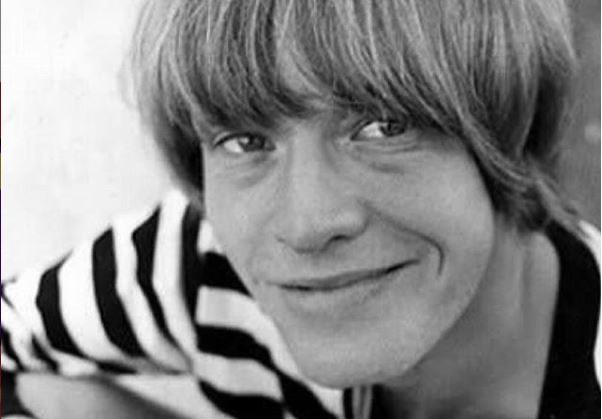
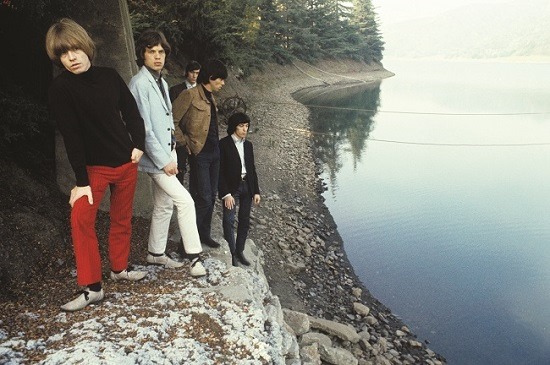
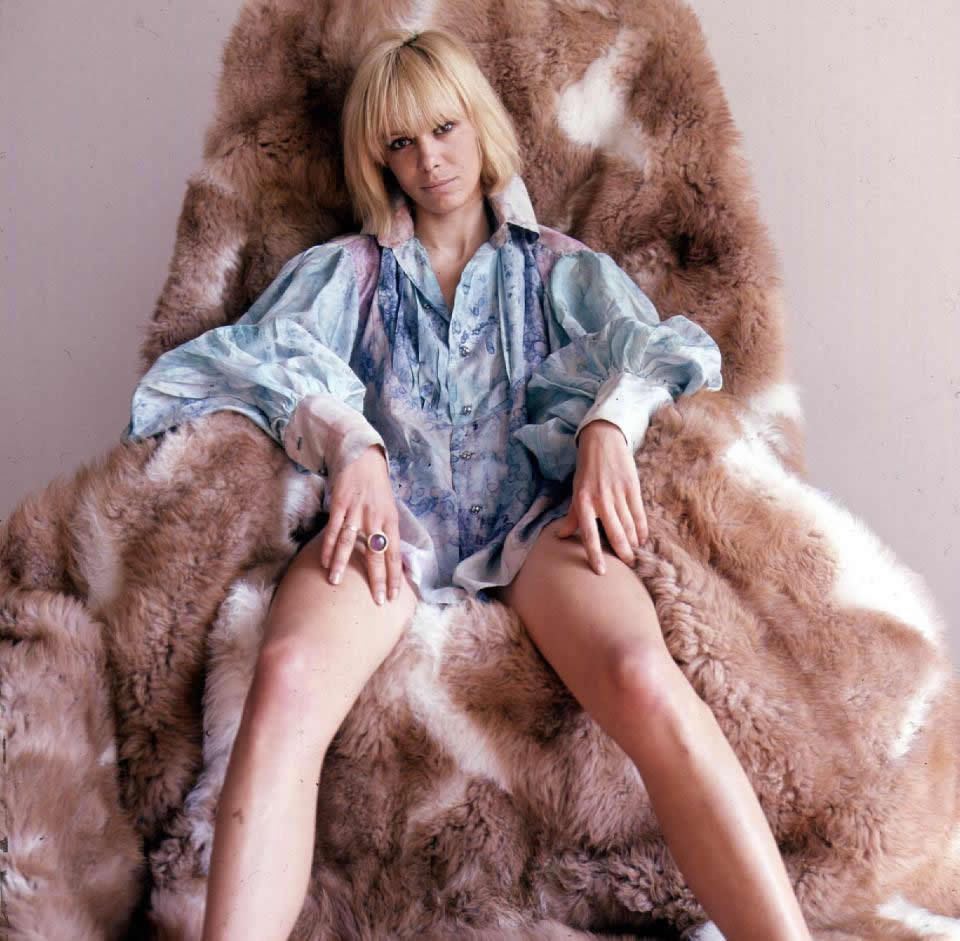
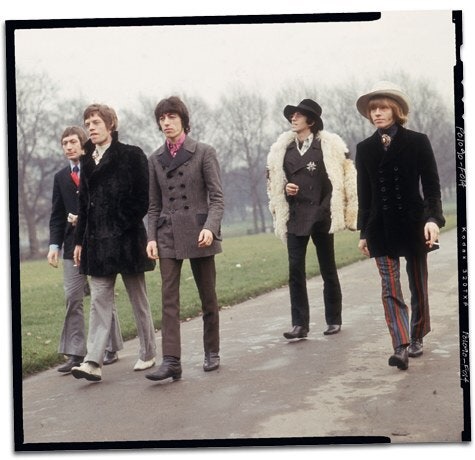
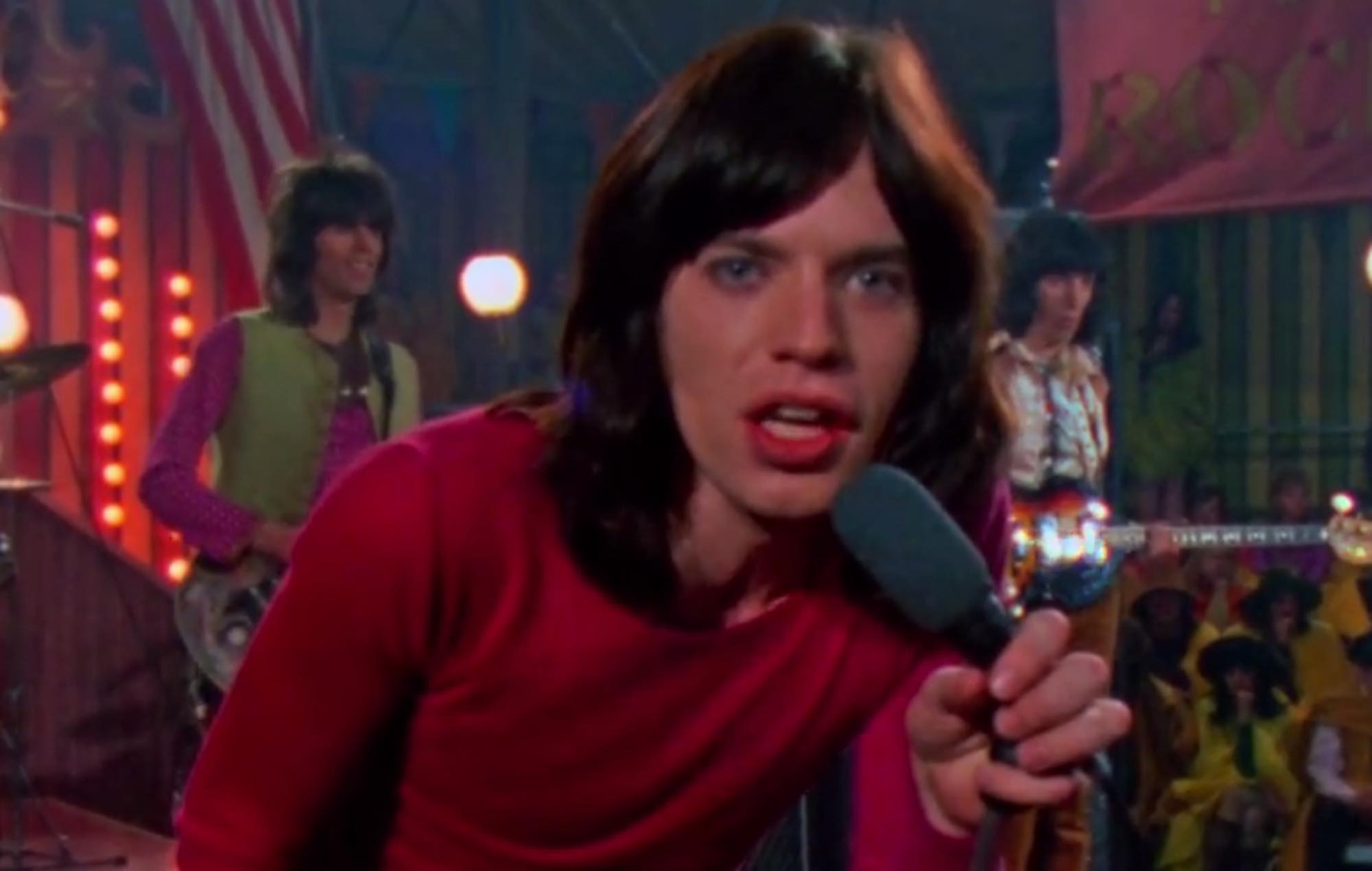
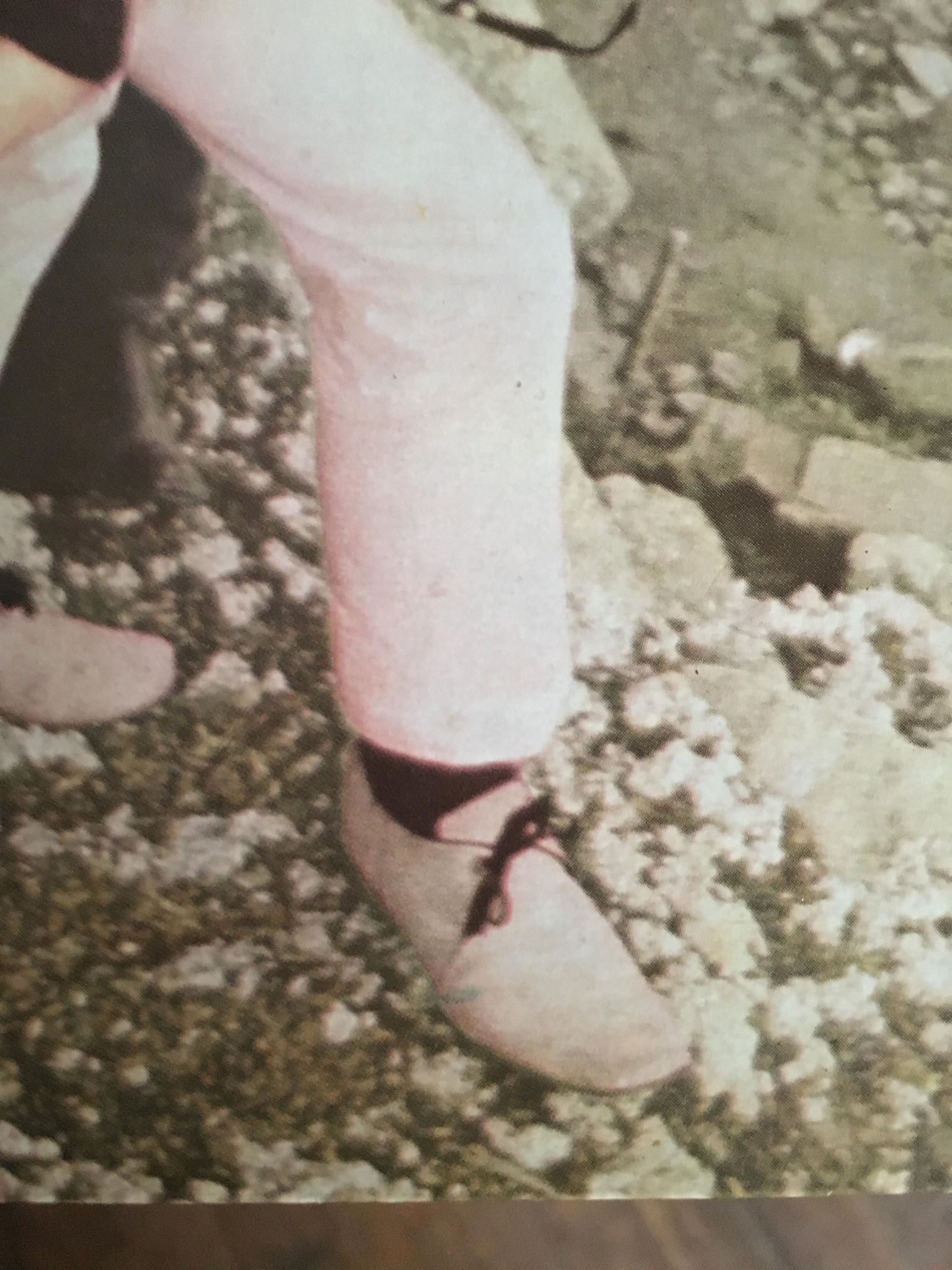
Cord Corded Corduroy
The Deighton – Limited Edition – Burgundy Jumbo Cord (Corded) Lace Up Shoe
Cord Corded Corduroy
Cord Corded Corduroy
Cord Corded Corduroy
Cord Corded Corduroy
Cord Corded Corduroy
The “Elliot” Jumbo Corduroy – (Corded/Cord) Lace Up Boots Dark Brown
2024SummerCOllection
Cord Corded Corduroy
Cord Corded Corduroy
2024SummerCOllection
2024SummerCOllection
2024SummerCOllection
2024SummerCOllection
Cord Corded Corduroy
Cord Corded Corduroy
 ‘Soul Deep – Adventures With The Style Council’ is a new book by Stuart Deabill, Ian Snowball and Steve Rowland charting the history of one of the most enigmatic groups of the 1980’s, through the eyes of the fans and those who worked with the musical collective.
‘Soul Deep – Adventures With The Style Council’ is a new book by Stuart Deabill, Ian Snowball and Steve Rowland charting the history of one of the most enigmatic groups of the 1980’s, through the eyes of the fans and those who worked with the musical collective.
The high-quality design led hardback book will feature personal stories and unseen photos as well as personal memorabilia from fans collections. They’ll also be interviews with some of the musicians and background team who worked with The Style Council between 1983 and 1989.
Soul Deep will feature some of the original artwork and photography that adorned the single and album sleeves as well as the tour posters, trade ads, merchandise. The authors will also revisit some of the live and record reviews that The Style Council received from the likes of NME, Melody Maker, Sounds and Record Mirror.
The 240 page hardback book will come in 2 editions, standard and limited.
Soul Deep is being crowdfunded through Kickstarter and there are several packages available. To pledge for a copy, go to https://tinyurl.com/Souldeepbook123
Soul Deep will be published in November 2020.
Stuart Deabill
The success of ‘Thick as Thieves – Personal Situations with The Jam’ proved that there was a market for fan inspired literature, and in the days of 80’s pastels against 1970s monochrome, I felt myself, Ian and Steve could produce something highly stylised to represent a group (and time) that was very important to us.
I was one of The Torch Society fan club members that travelled round the country to see the group wherever possible, and was very inspired by the music, the stance, the clothes and the political edge. I want to make sure we cover and capture what it meant to be alive (and kicking) during the 1980’s.
About The Authors
Stuart Deabill has co-written 3 books with Ian Snowball including the best seller – ‘Thick As Thieves – Personal Situations With The Jam’, that Paul Weller described as “the best book on The Jam, and it’s fans, I’ve ever seen”. He works closely with Steve Rowland on other projects through the AFTN imprint and lives in Watford.
Ian Snowball’s first gig was The Style Council in Brighton in 1985, and became a drummer because of his love of Steve White’s playing. Ian has written books about The Who, Mods, Dexy’s Midnight Runners as well as work with DJ Marshall Jefferson and Madness’s Lee Thompson. He’s also penned several novels and lives in Maidstone.
SOUL DEEP – ADVENTURES WITH THE STYLE COUNCIL
love of style and music was inspired by The Style Council throughout the 1980’s leading to a life immersed in music, design and writing books. He has co-authored 2 books ‘Modzines – Fanzine Culture from the Mod Revival’ and ‘Punkzines and lives in Brighton.
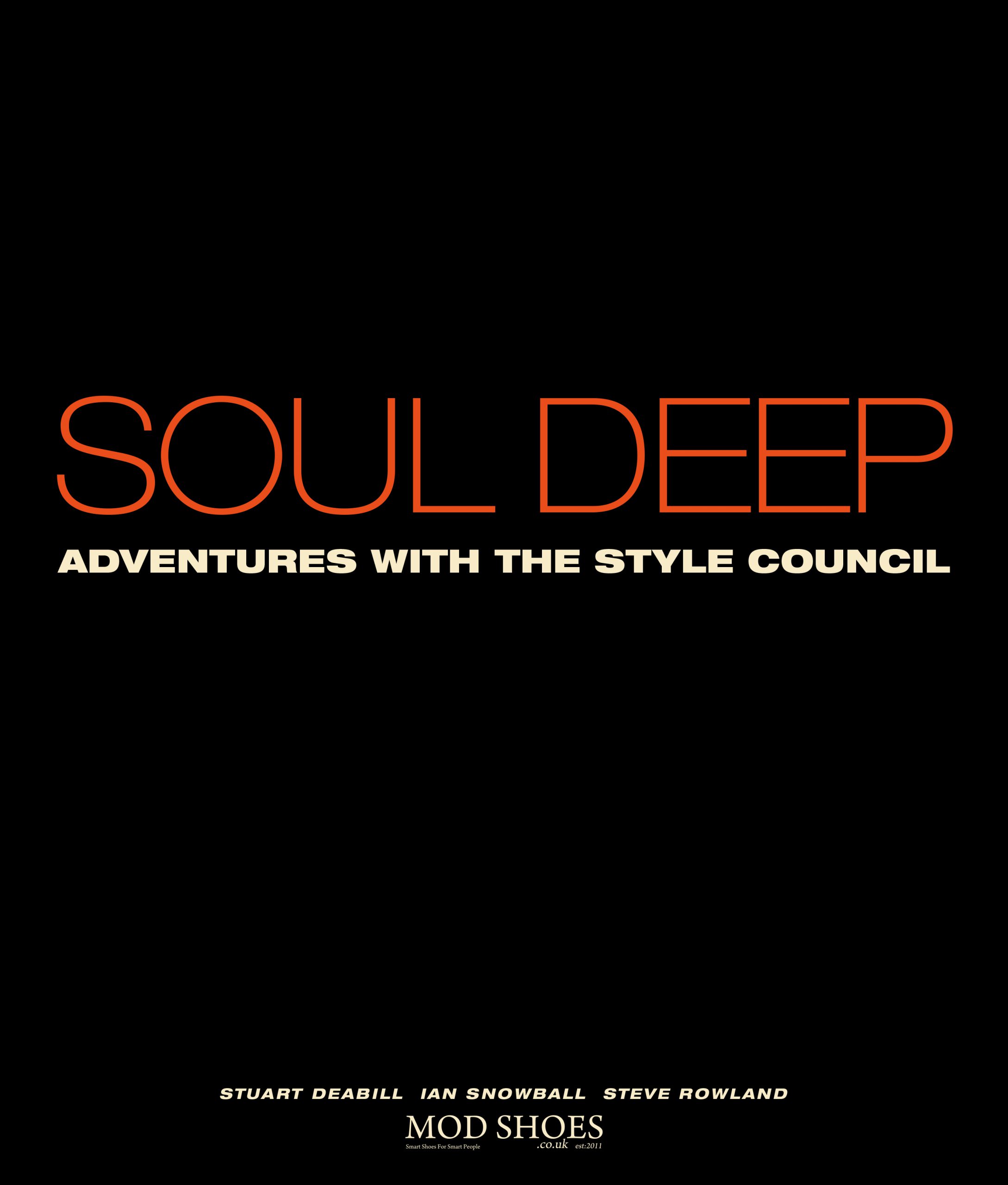
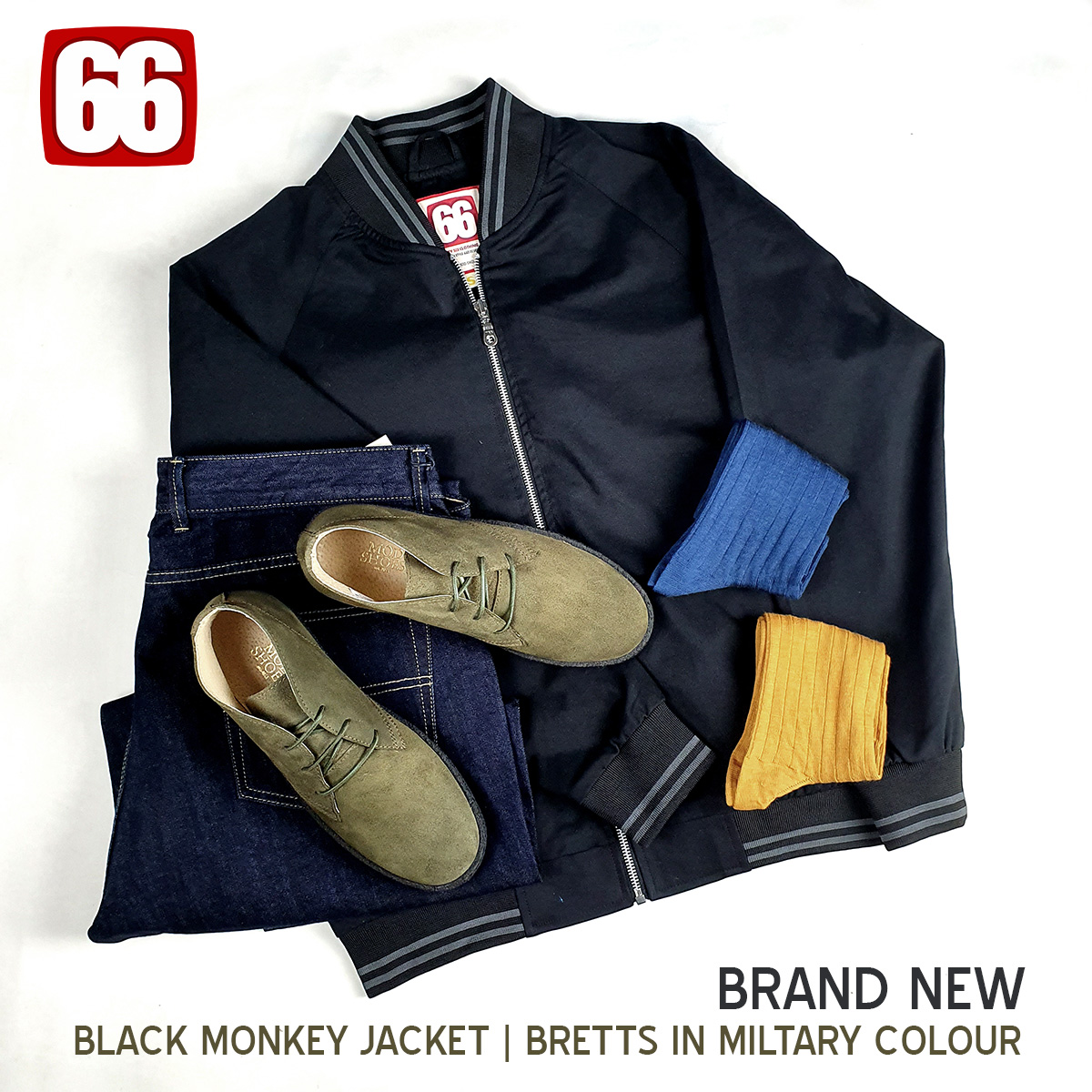
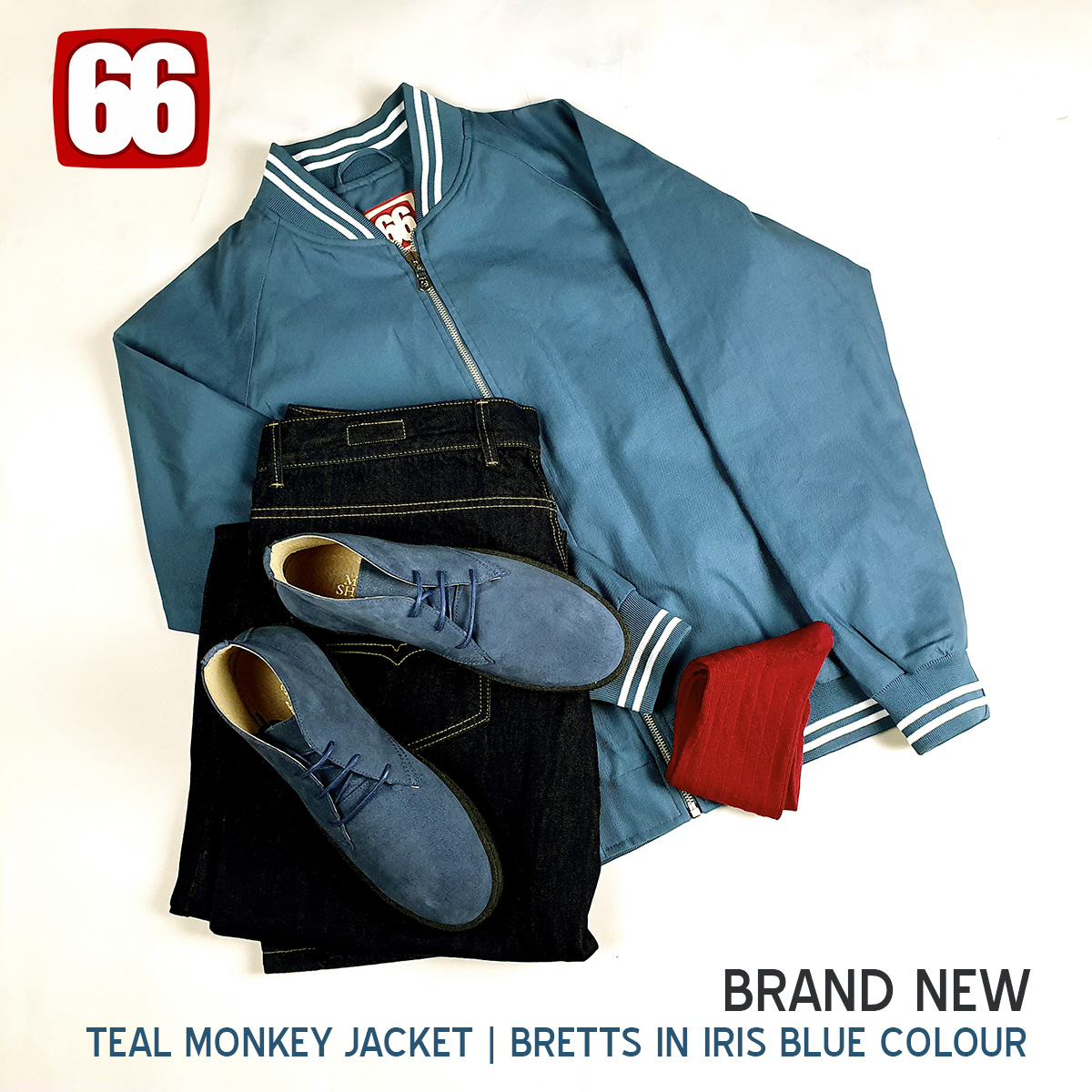
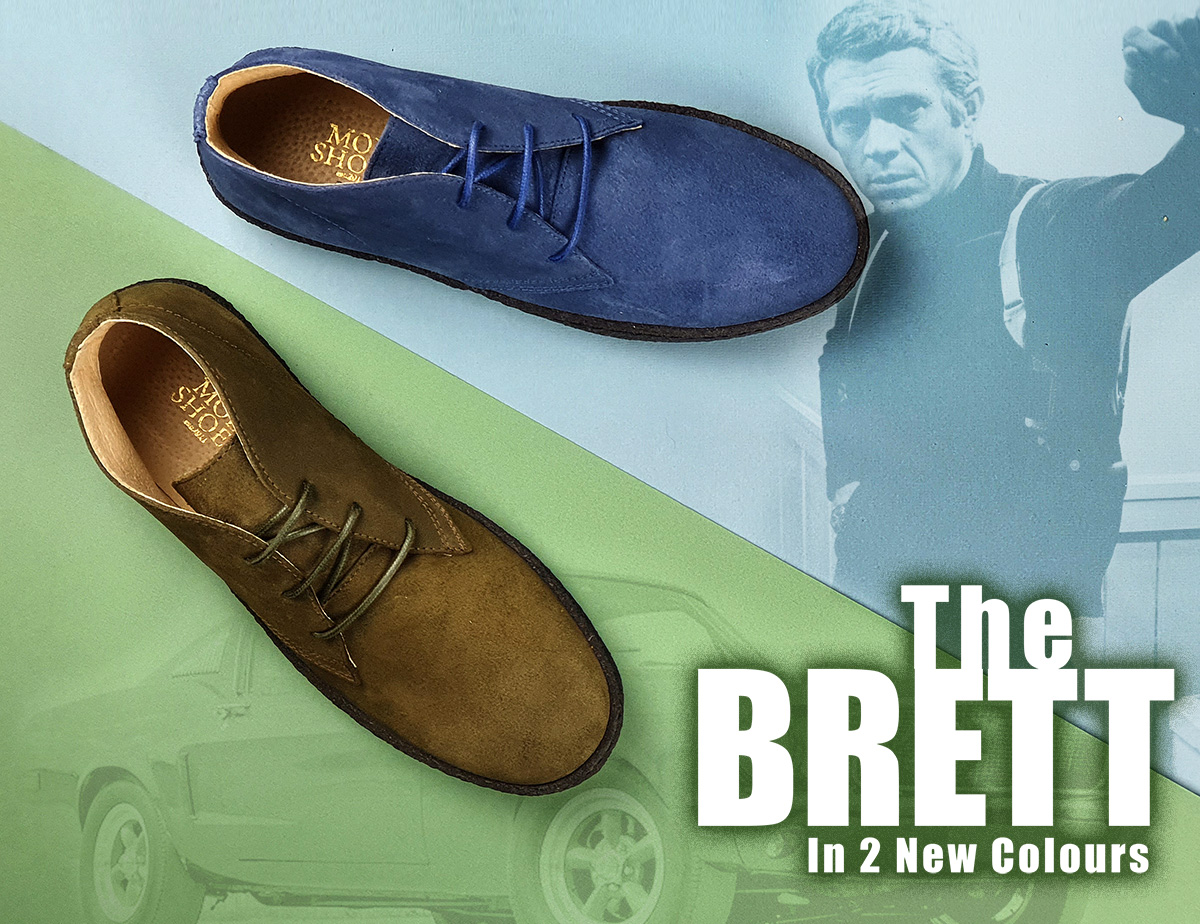
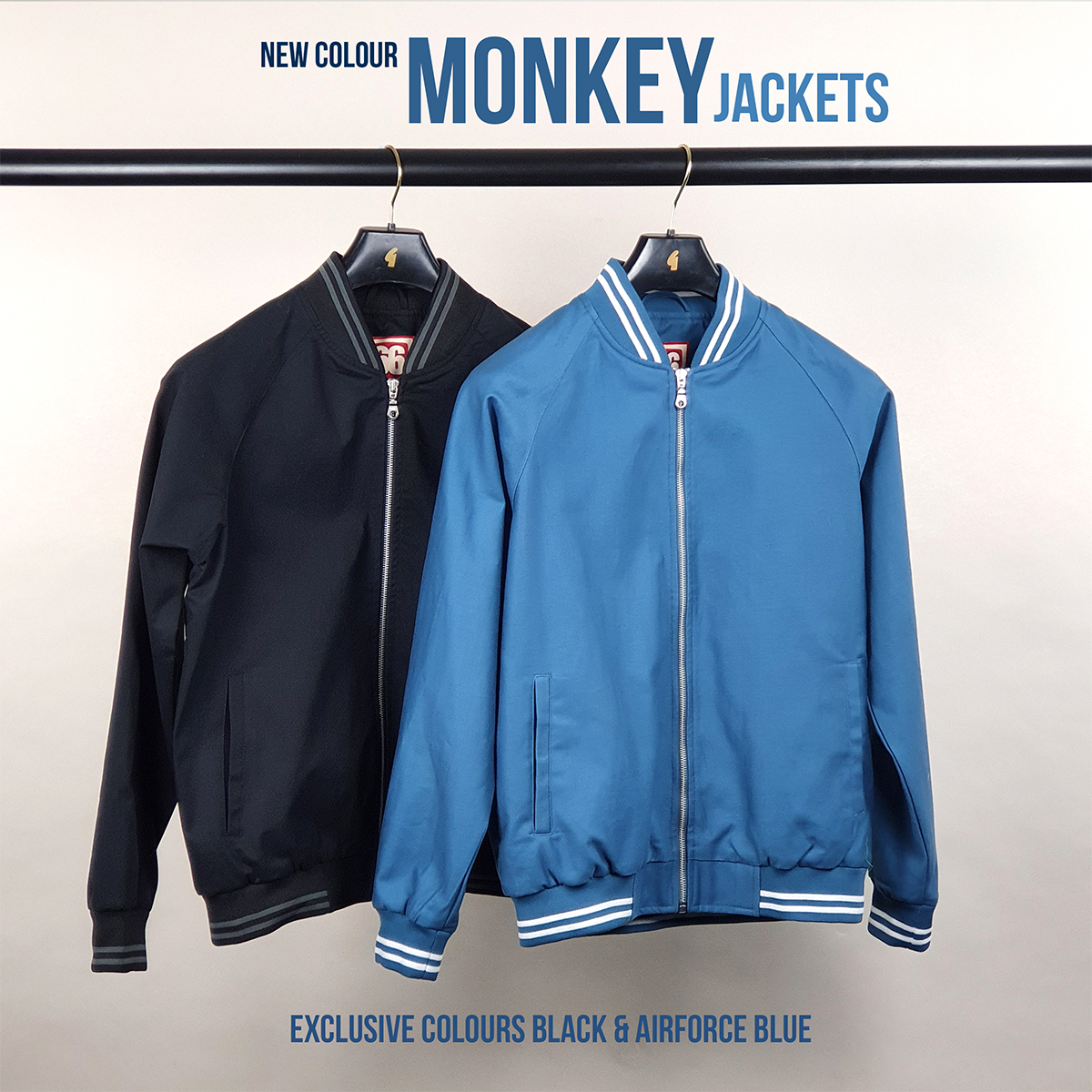
Here you can see some pics we did recently featuring the new scarves we are doing. Made In England, the scarves are really nice, teamed up with some of our winter coats we, think they look proper smart.
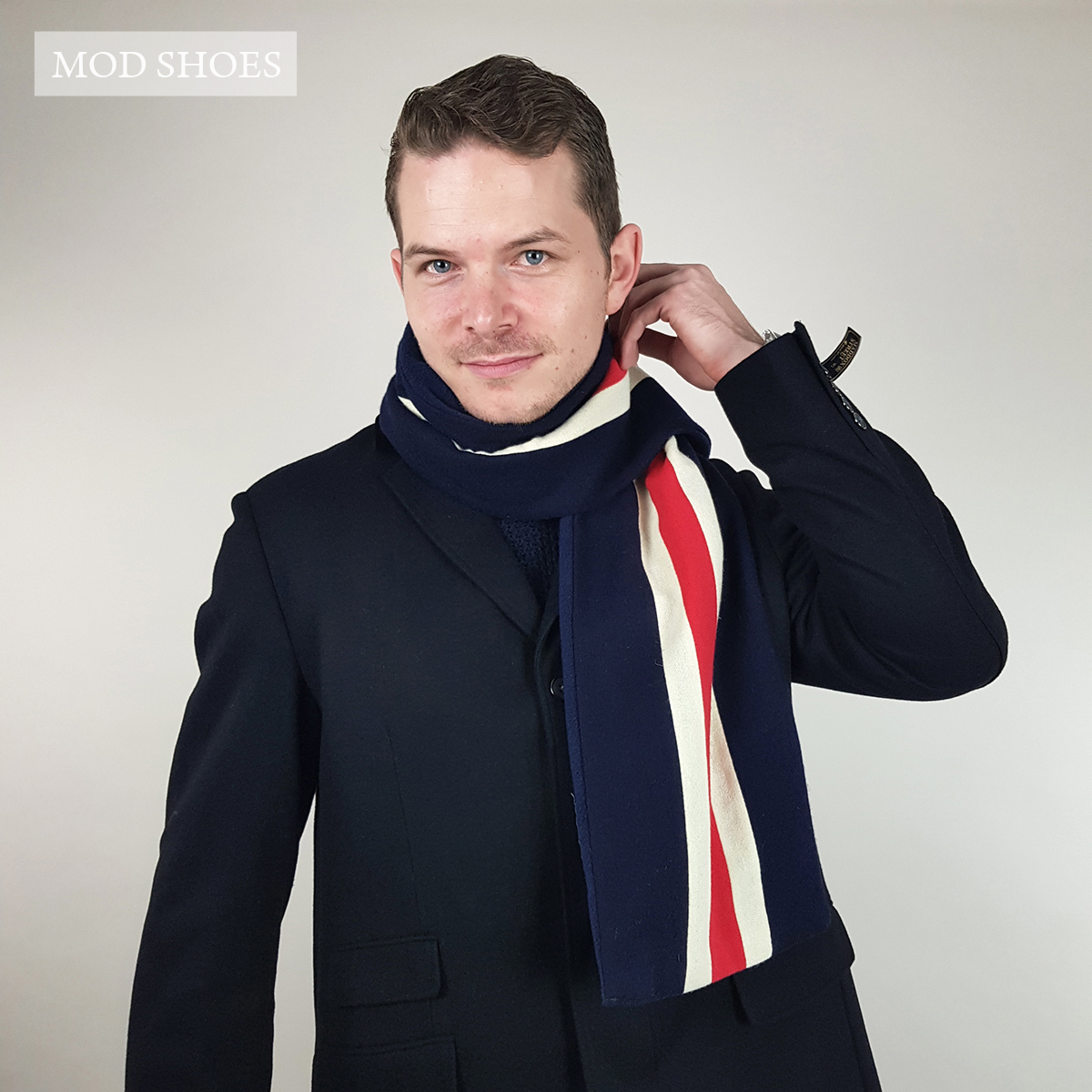
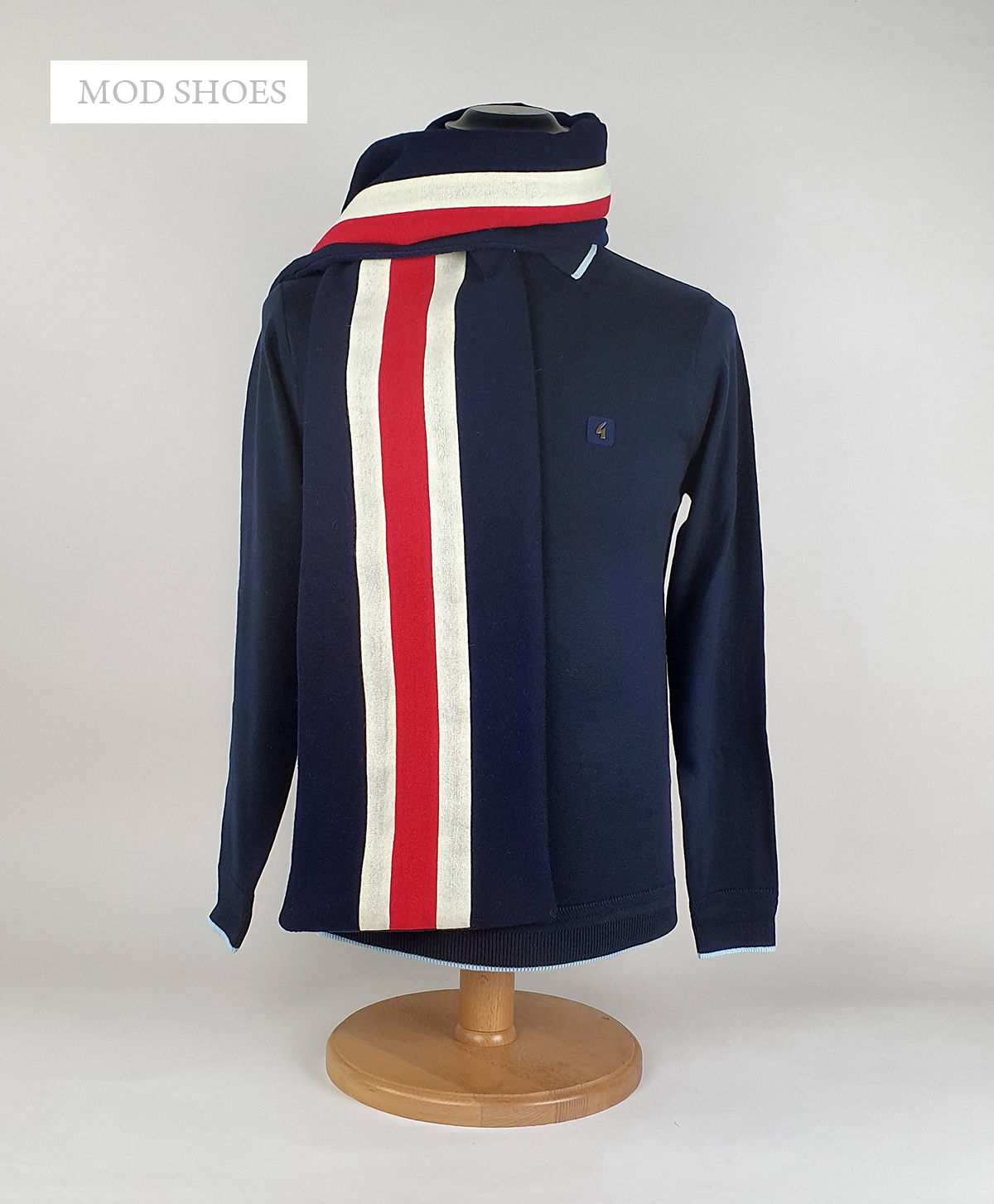
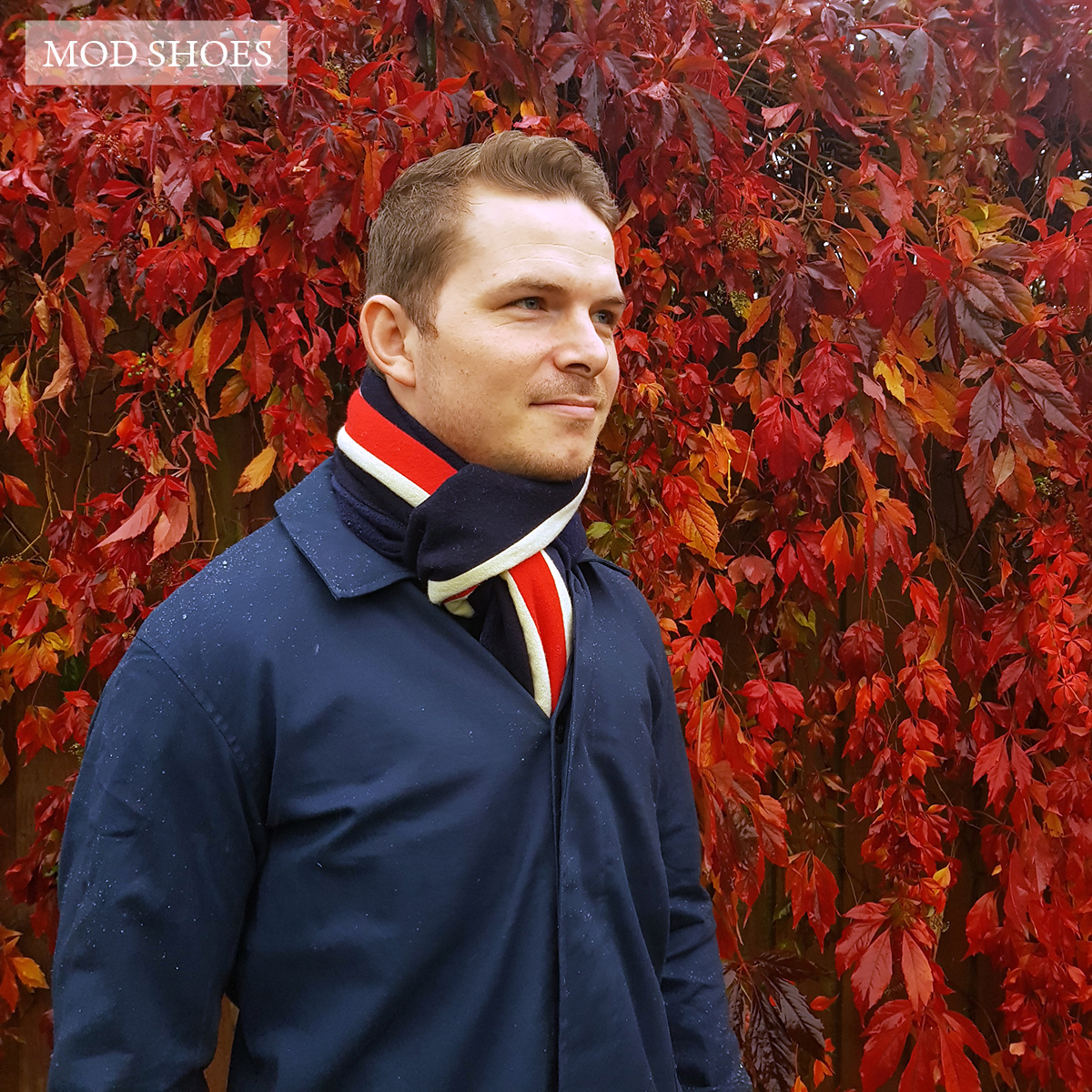
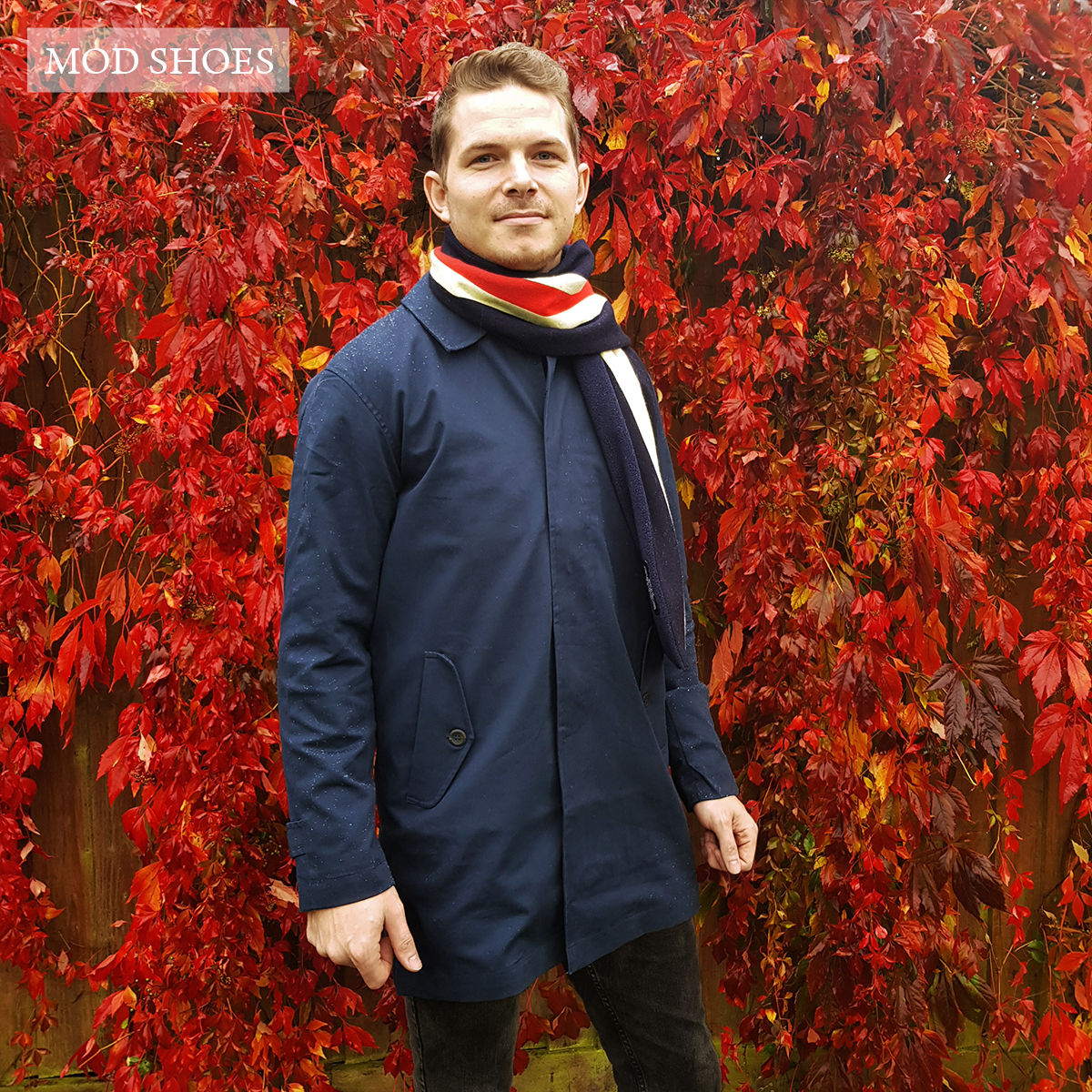
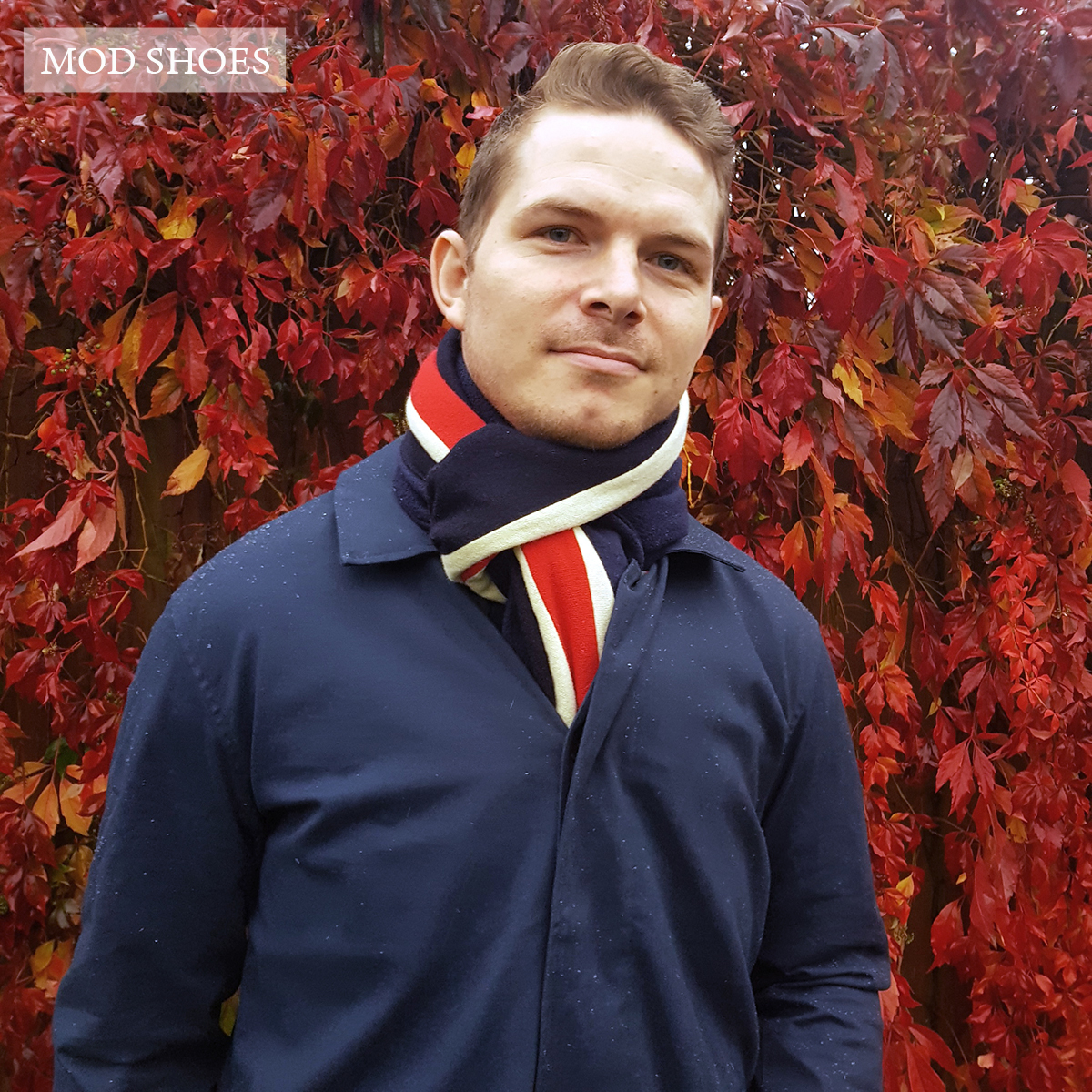
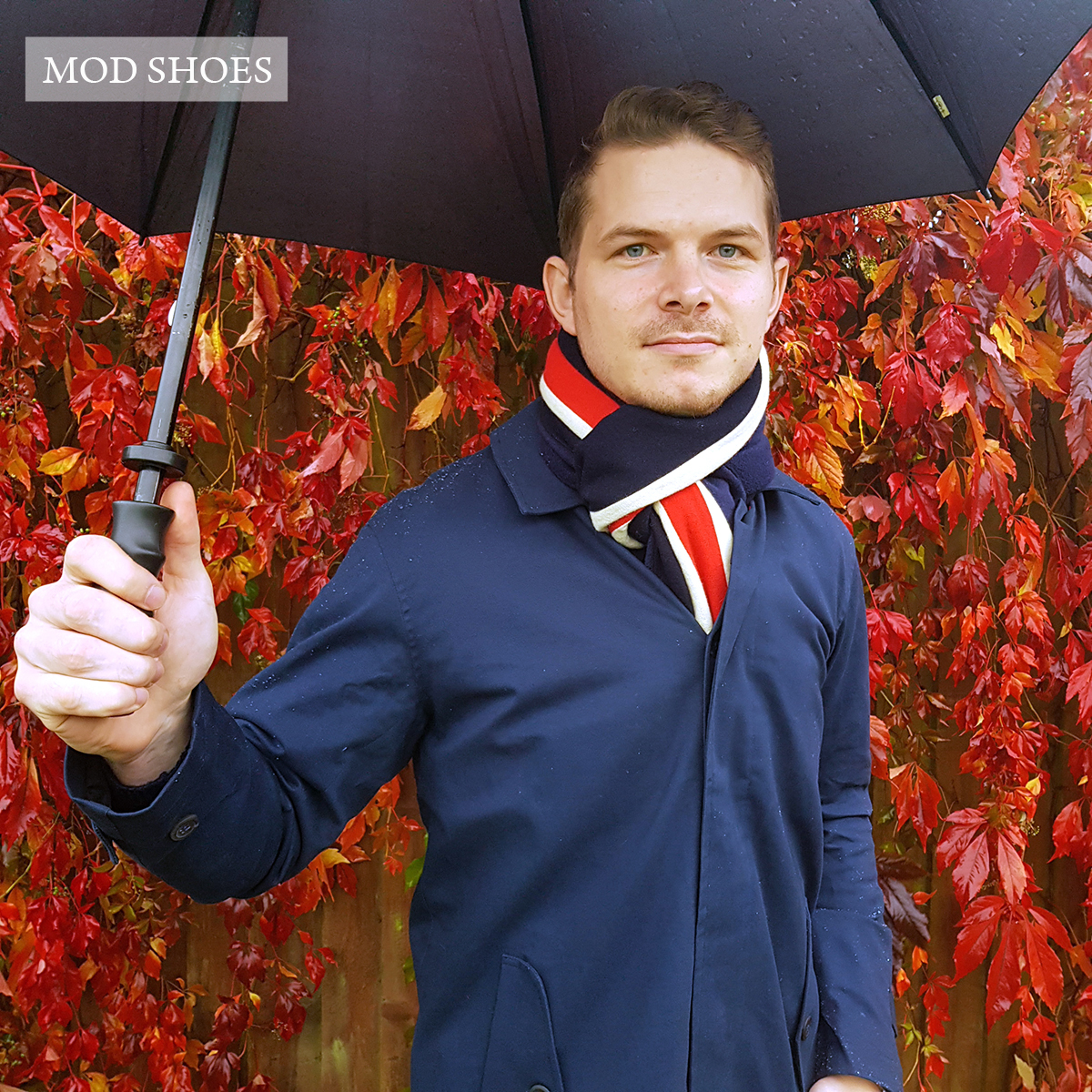
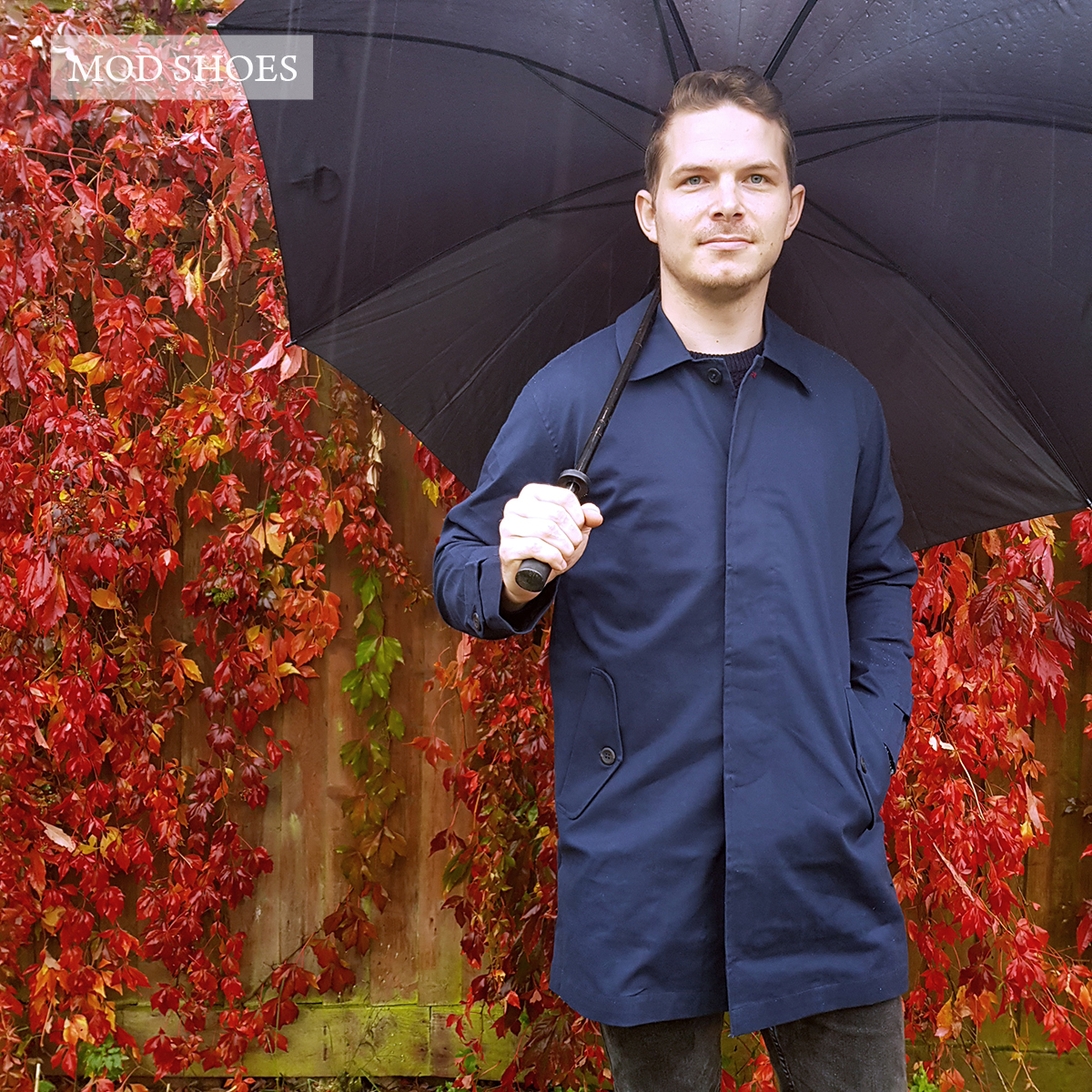
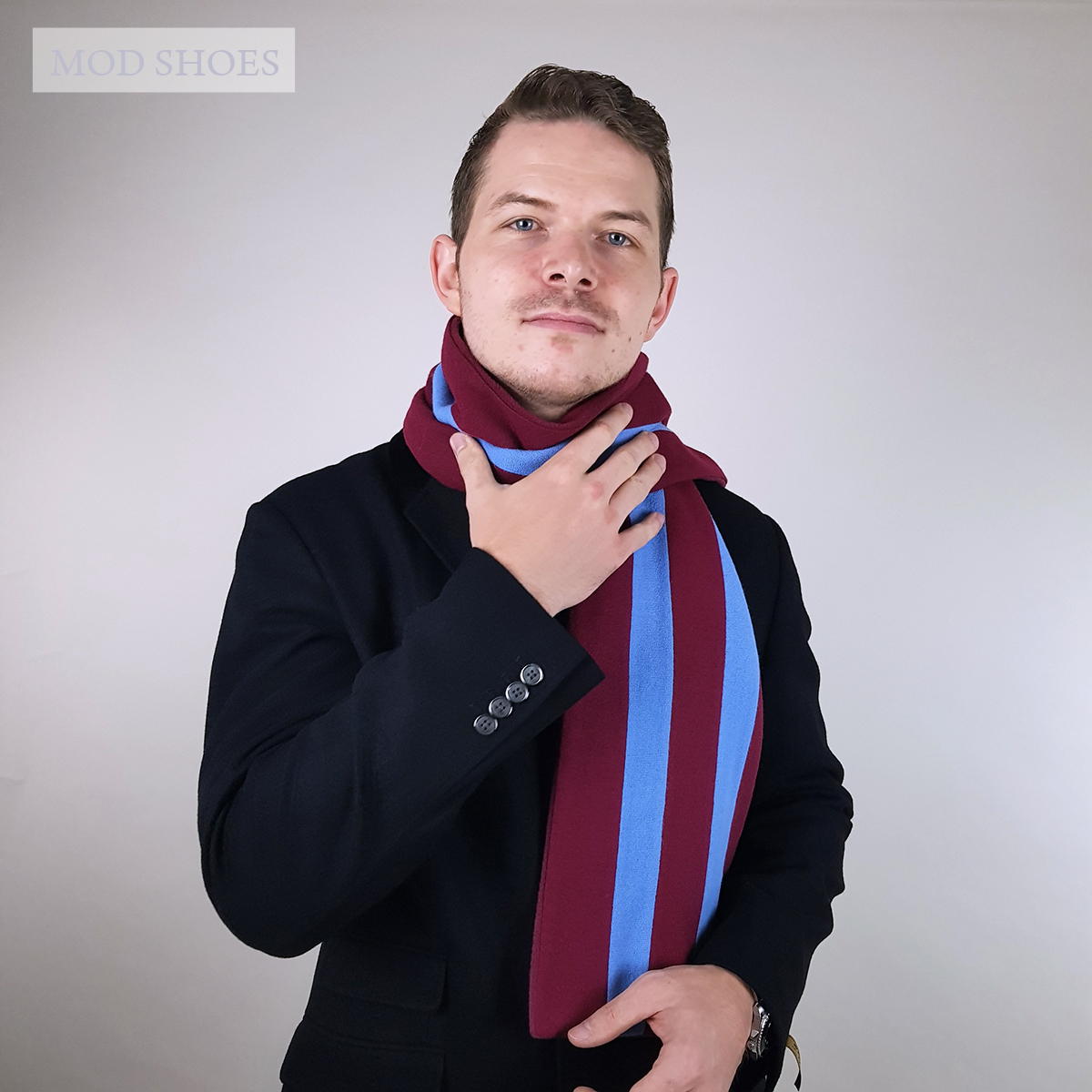
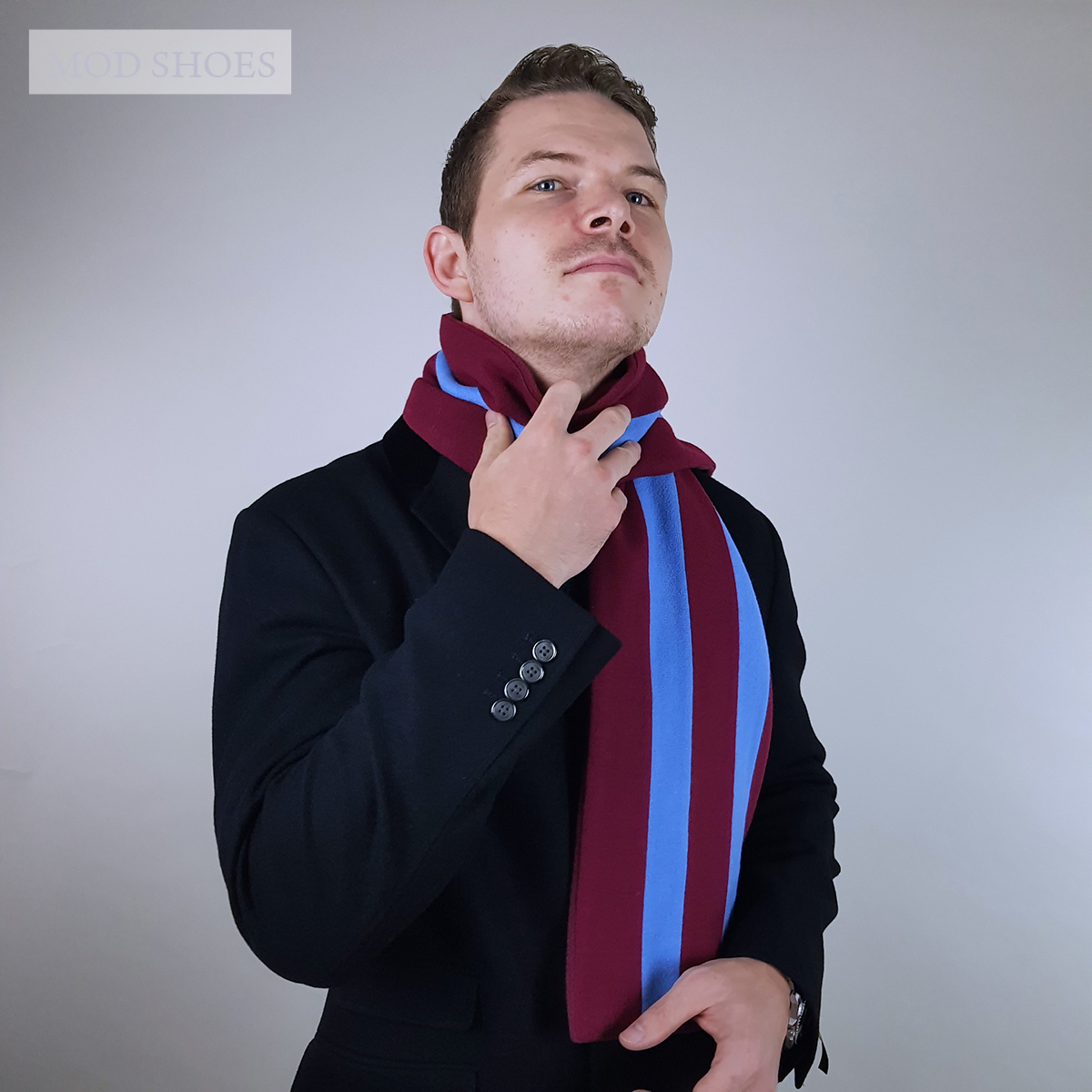
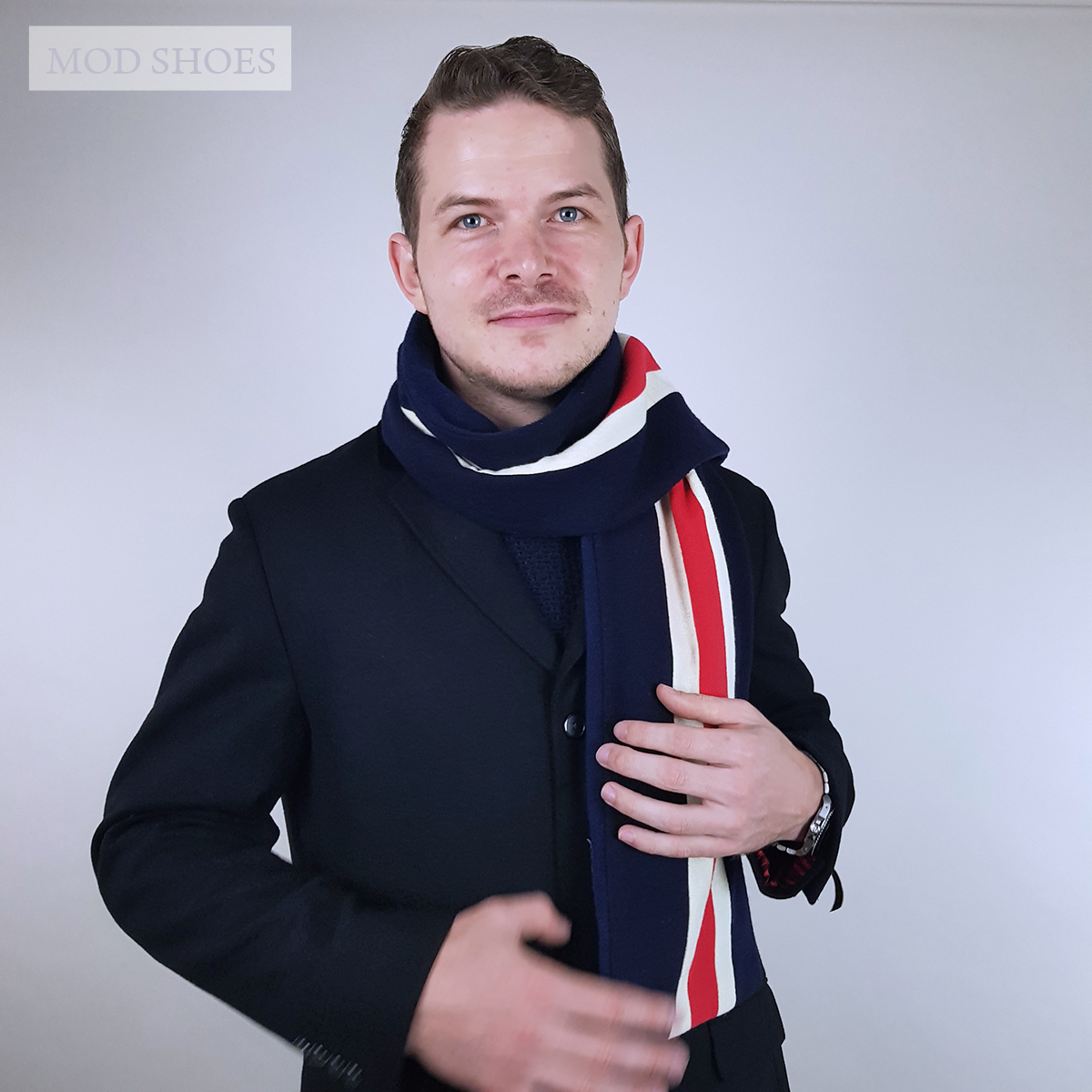
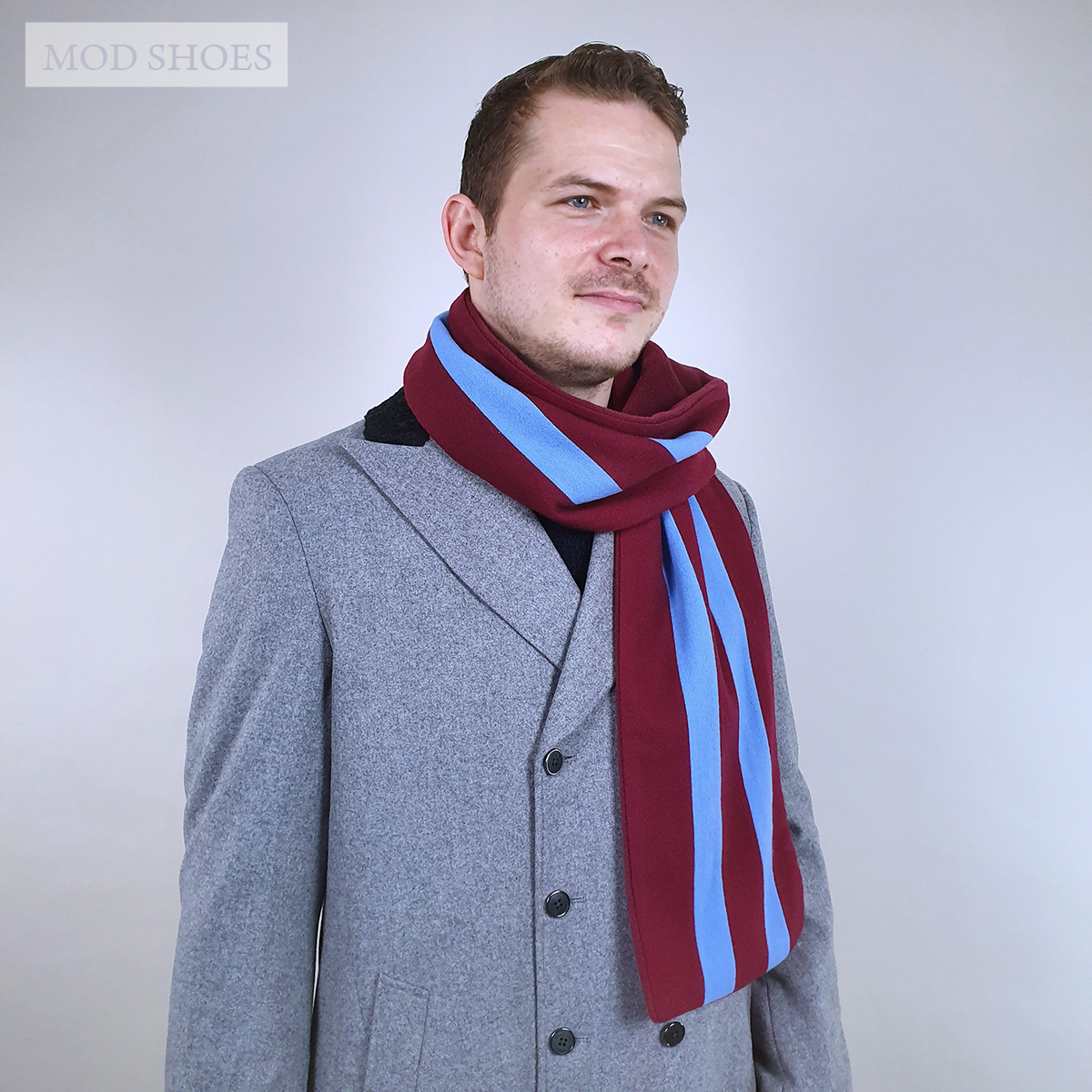

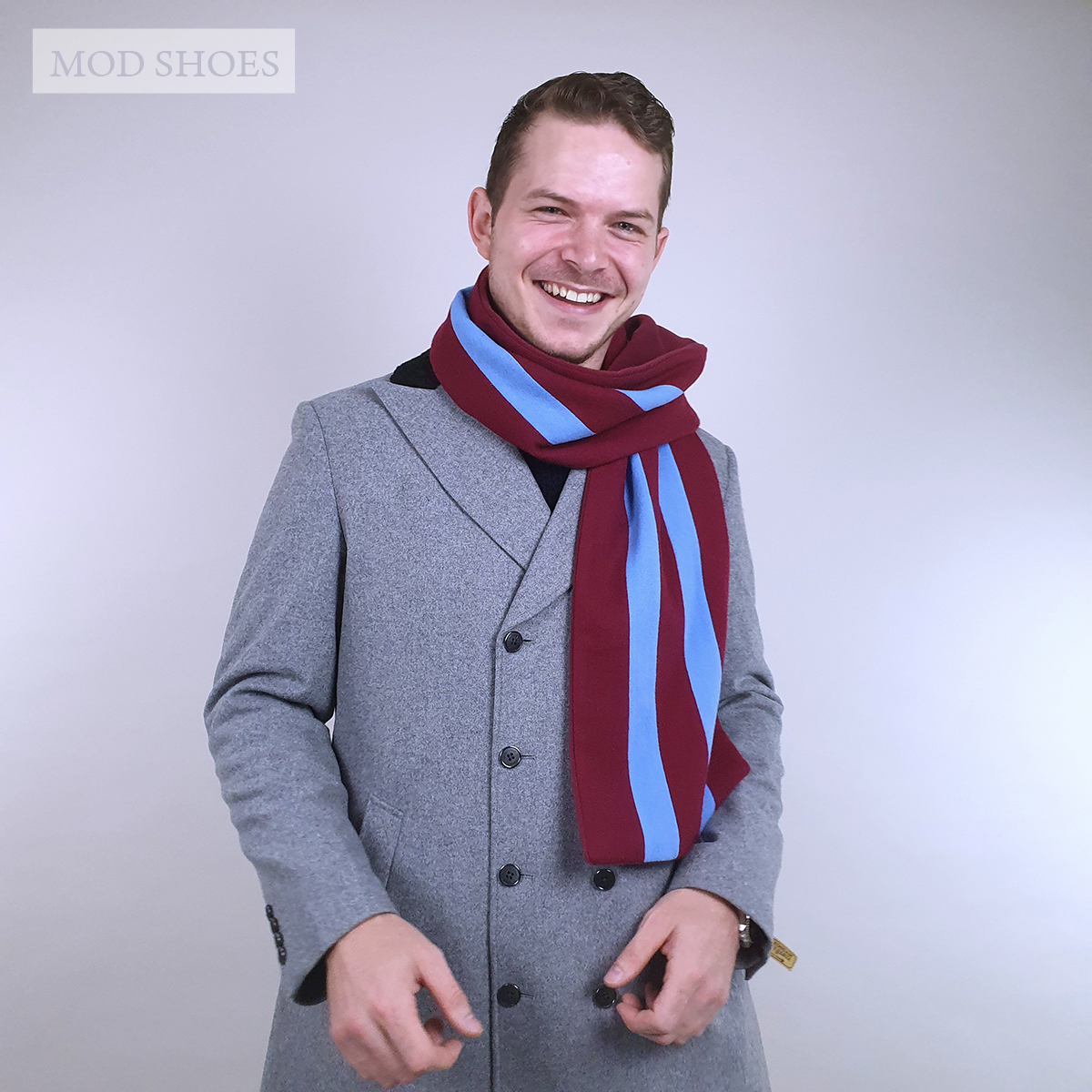
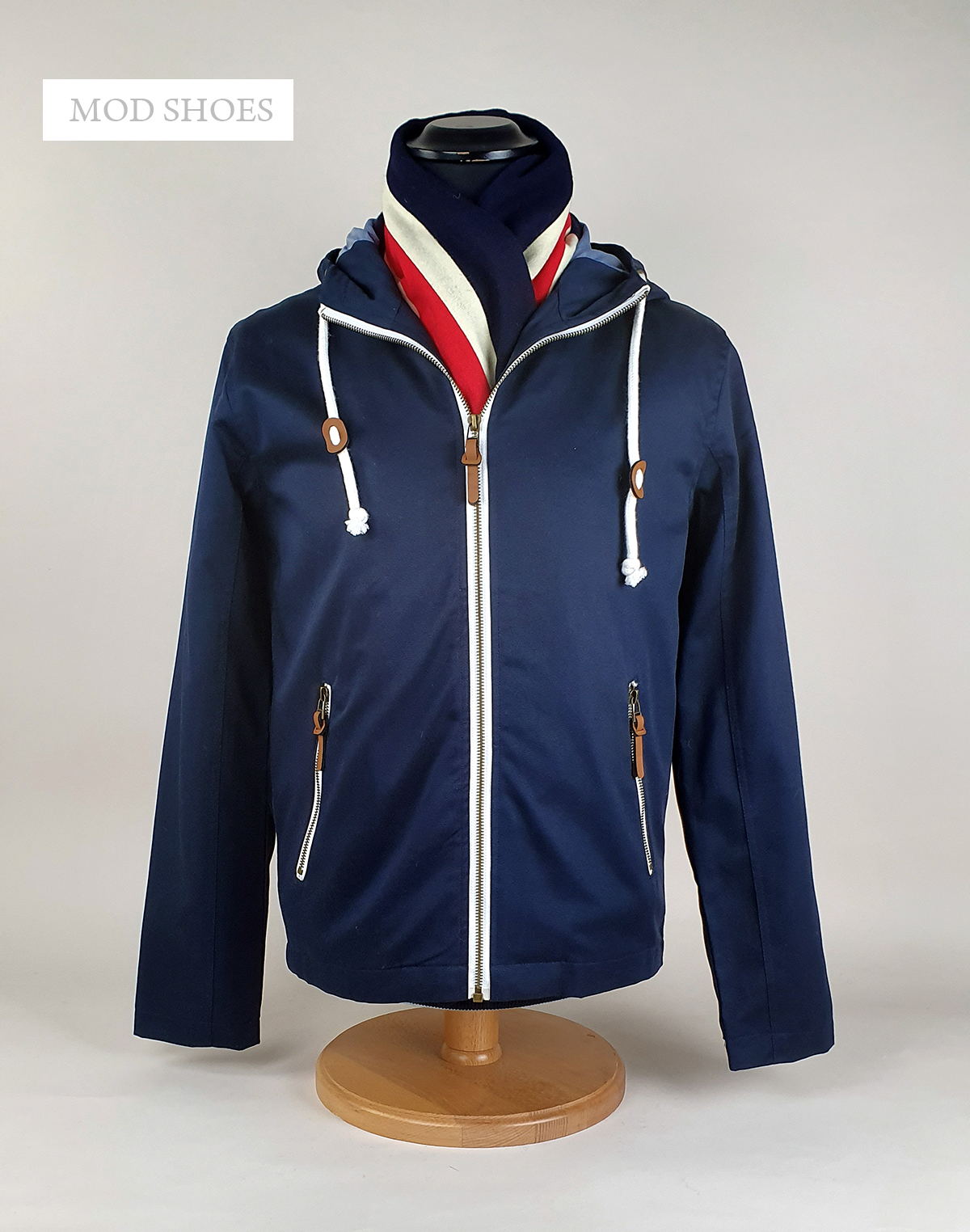
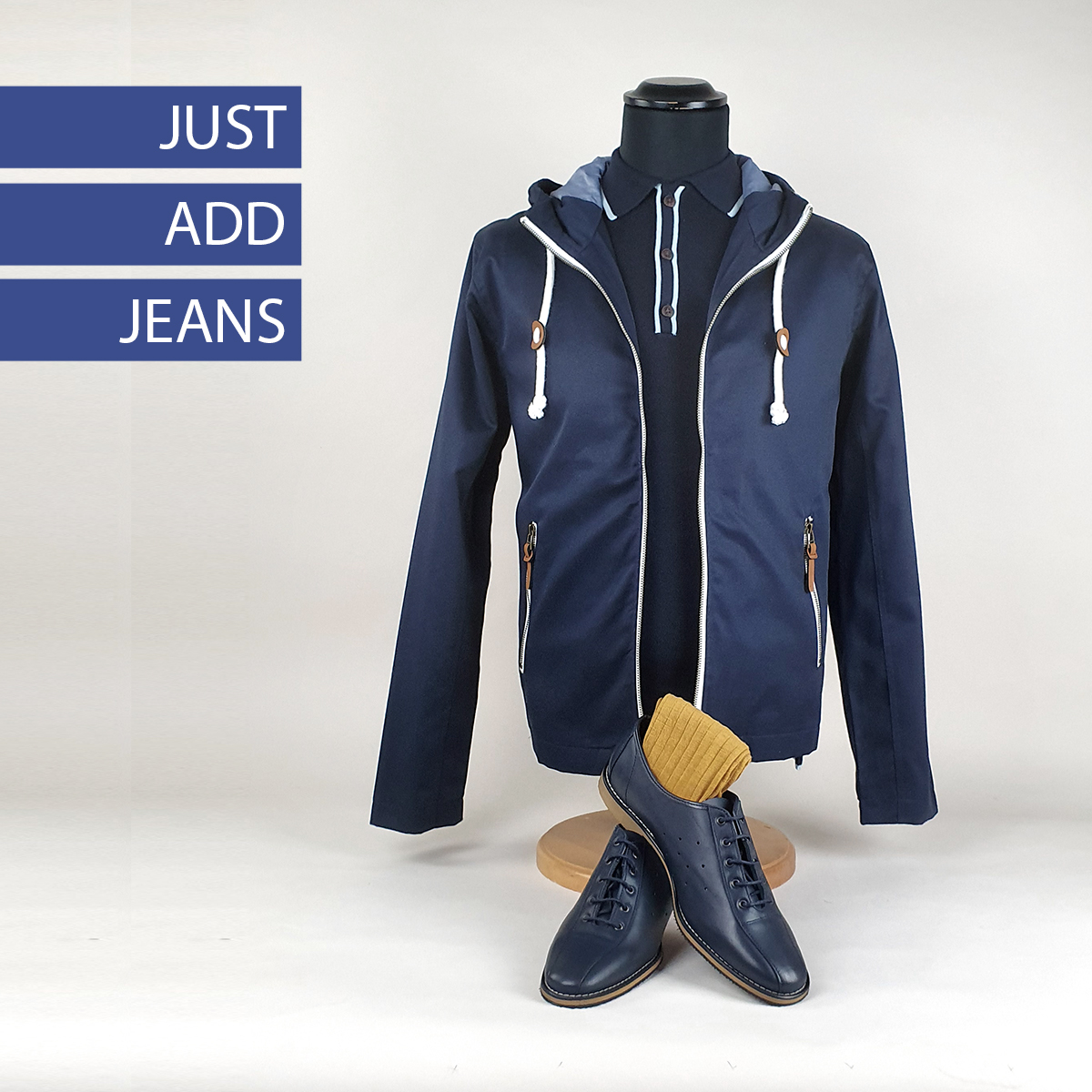
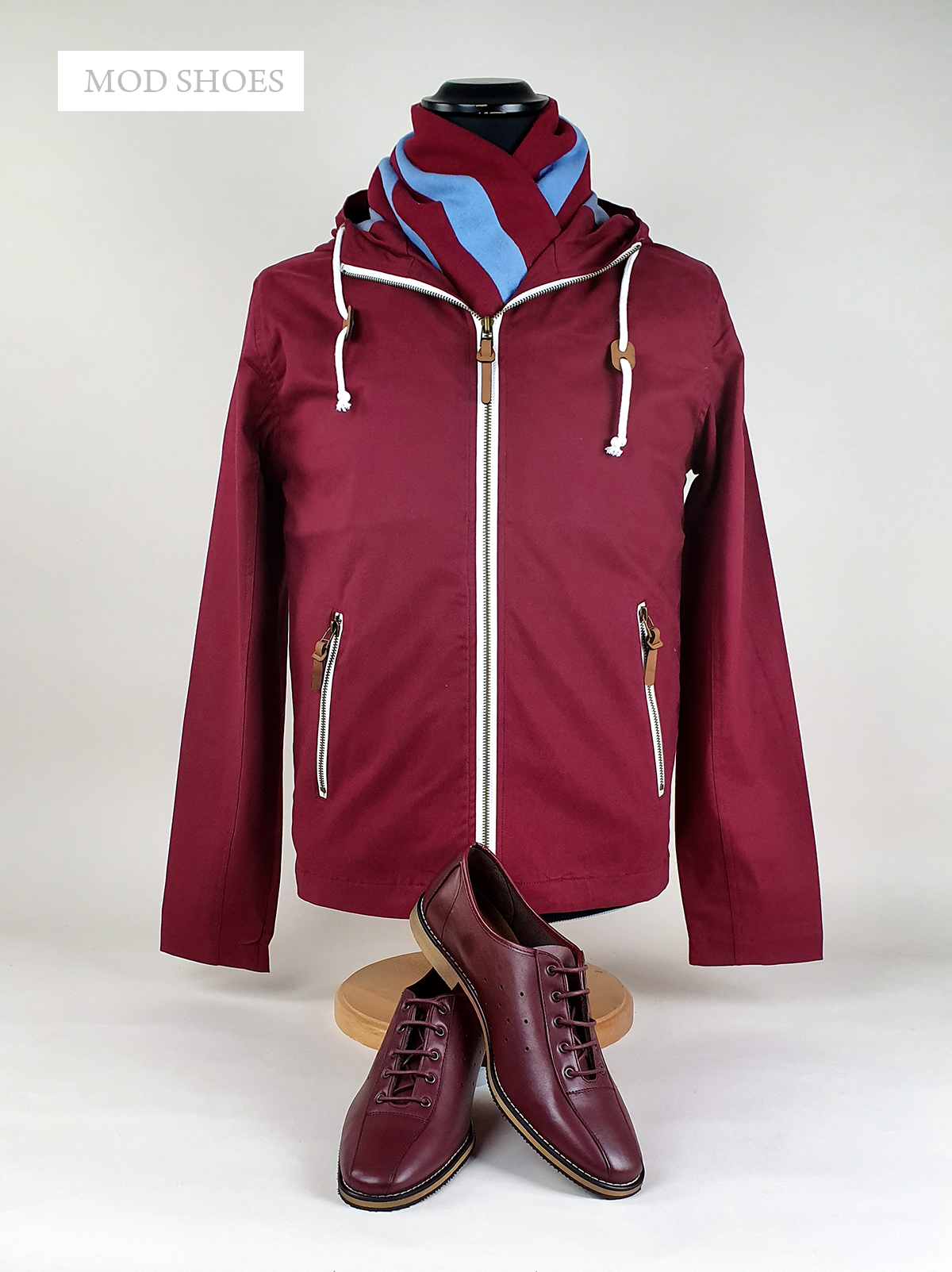
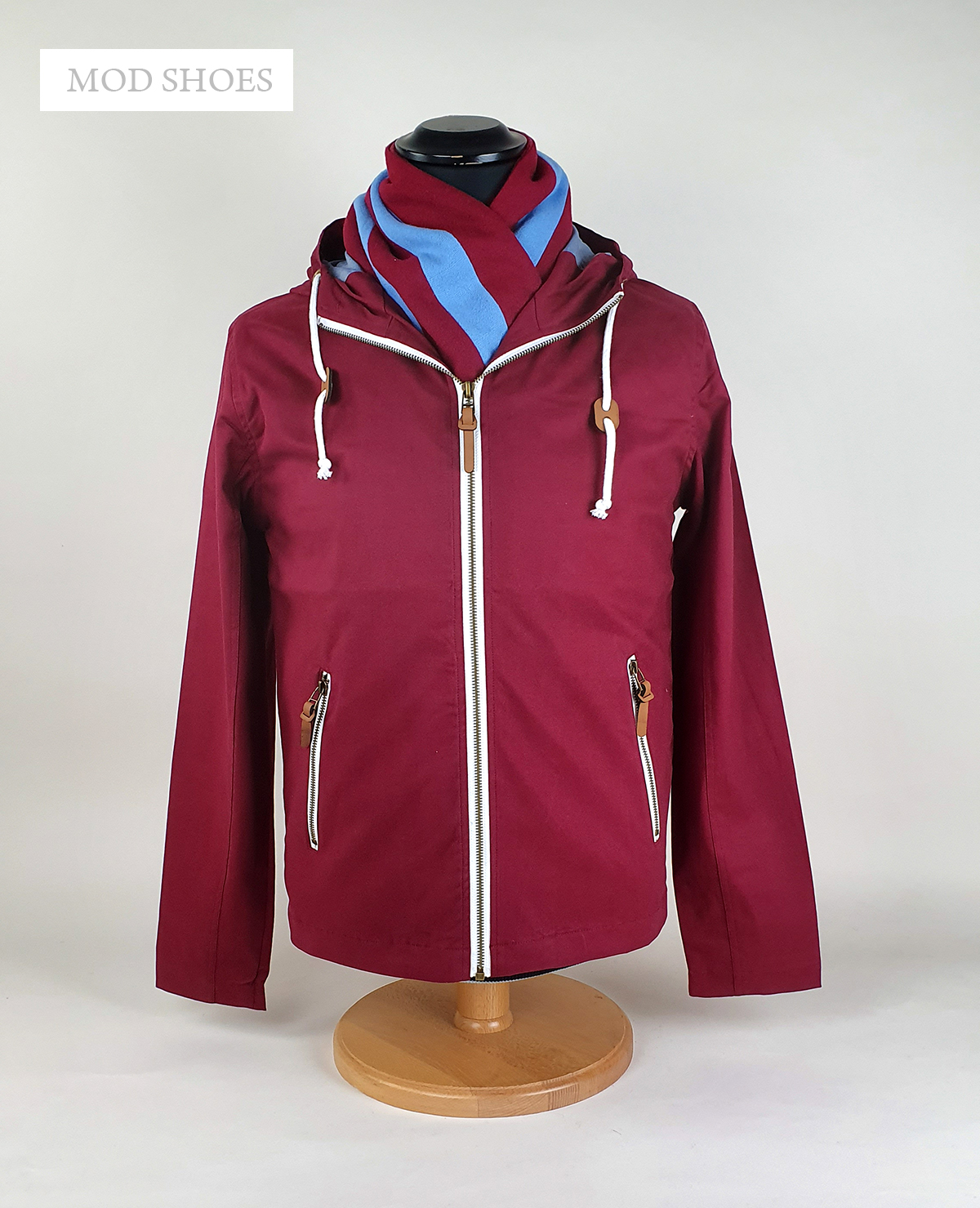
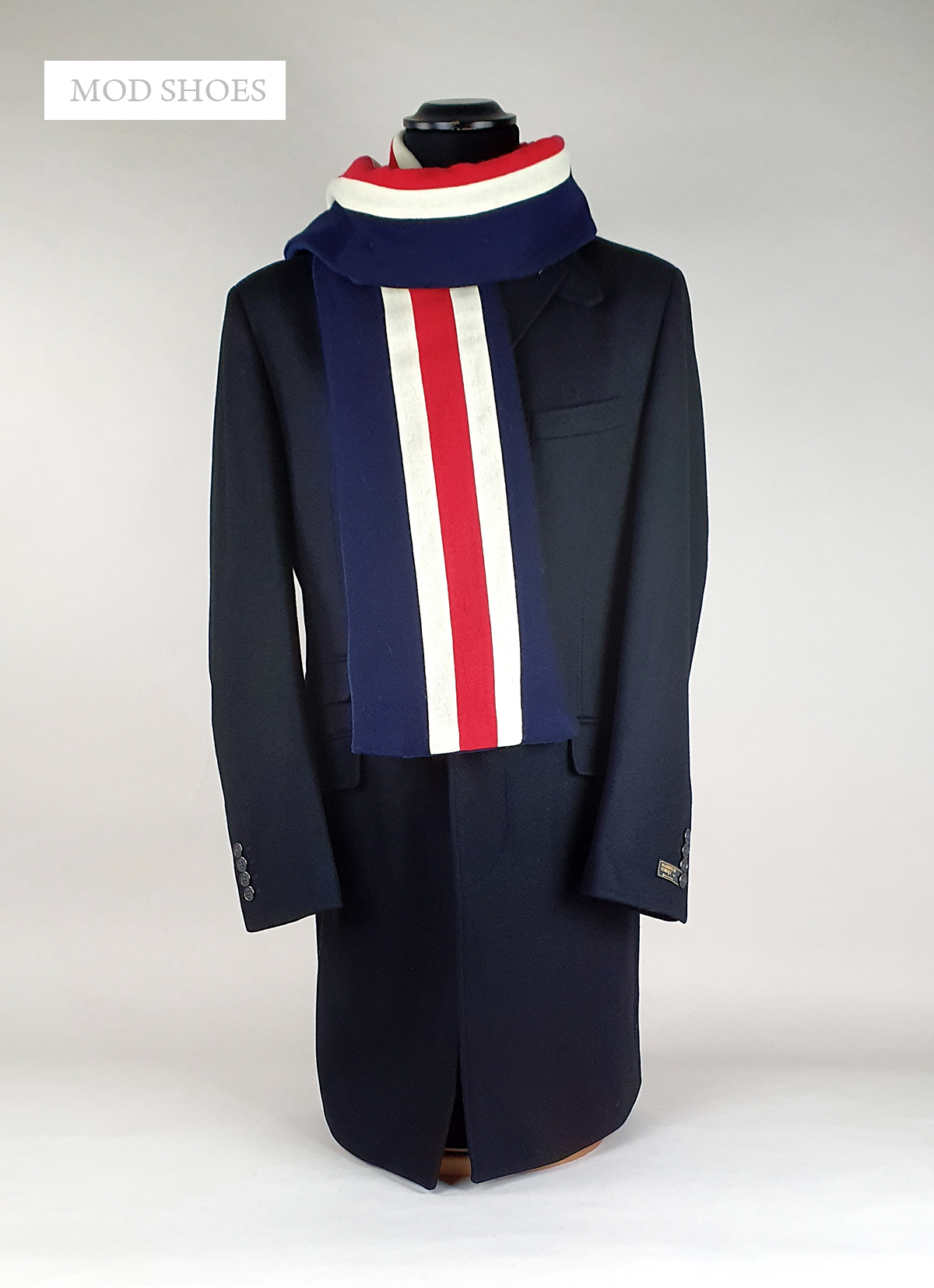
When we choose our shoes, jackets, tops, in fact anything we sell, one of the major considerations is what will it be worn with and where. Below you can see a few of the items we sell together. We thought you would like it.
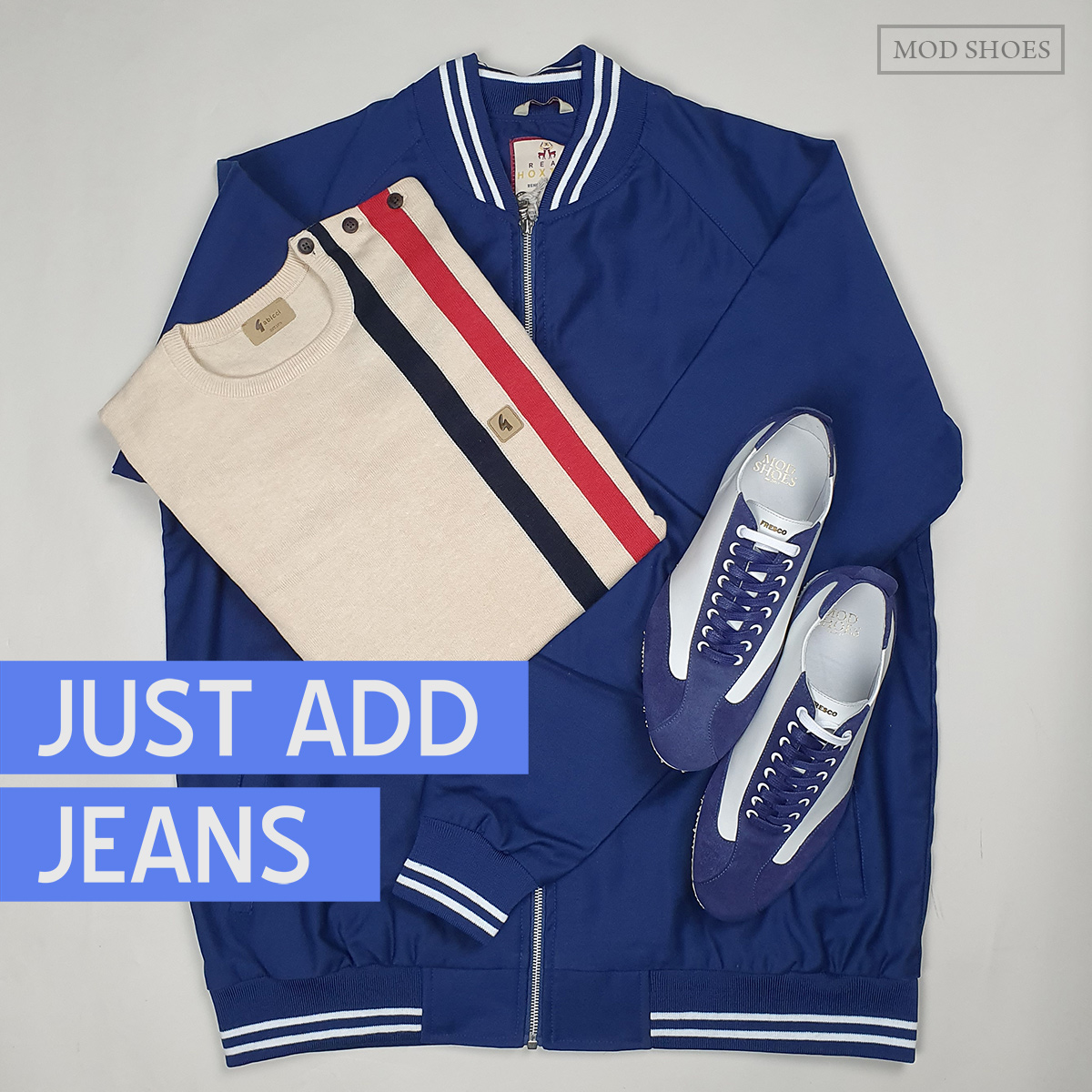


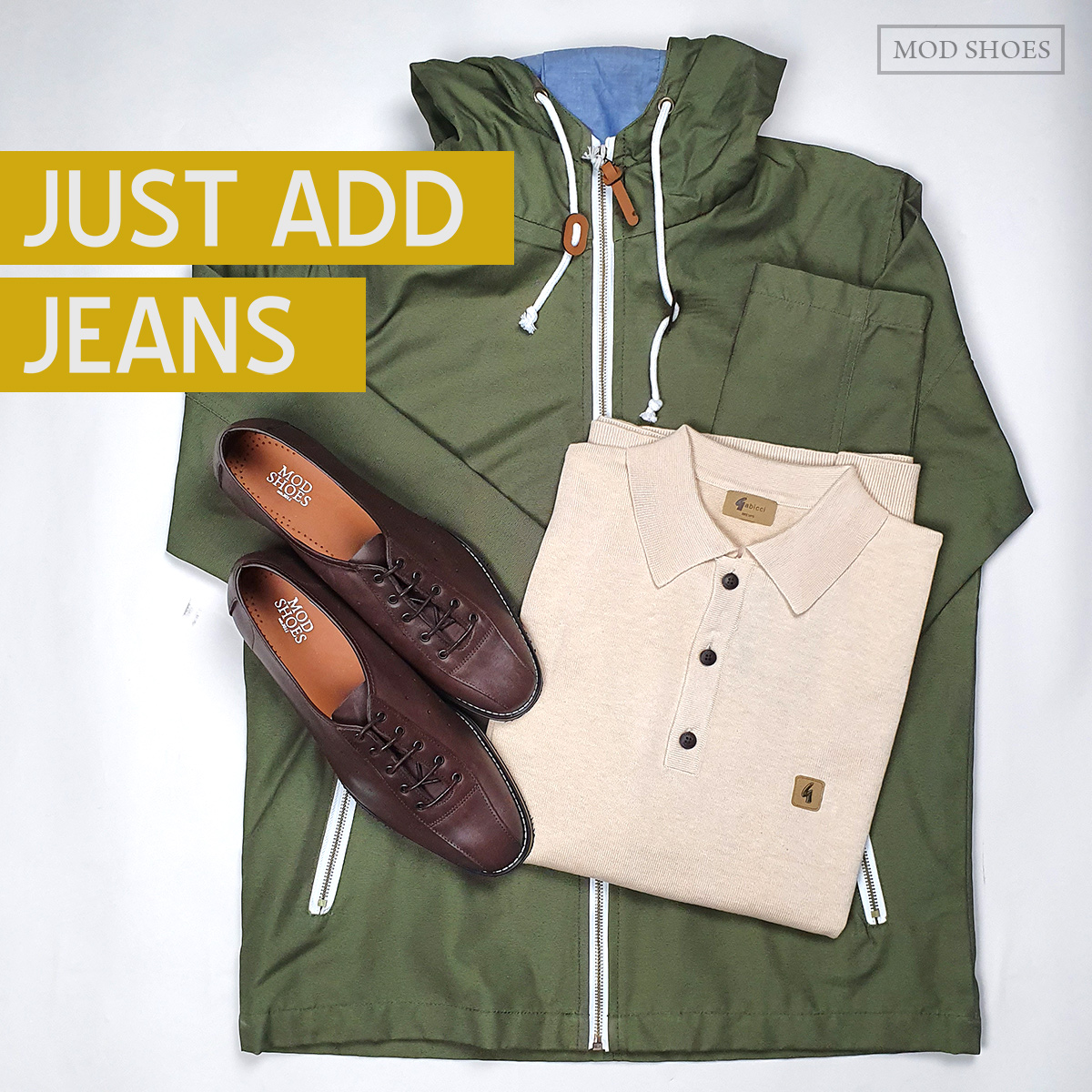



Clothing
Clothing

